You're about to dig into possibly the most unhinged ship manifesto you've ever seen in your life.
What if Ken was... And what if Takeru was the one who...
Been here before? Click to navigate directly to the other pages of the manifesto.
Part 2
Part 3
The Takeru/Ken Manifesto: A Foundation of Disaster
Part 1: The Characters
The evidence presented here is not presented as evidence that takeken is "totally canon". Instead, this concerns the chemistry, very particular circumstances, and psychological profiles of both Takeru and Ken in their canon contexts, and how these factors contribute to and support FALLDOWN MODE's interpretations. Put simply, there are specific character traits and events which, taken as a whole, paint a picture of two people perfectly set on the knife's edge of catastrophe, where a little push is all it takes to send things spiraling out of control.
By out of control we're referring to noncon, to be clear. LOTS of it. We did tell you this was the most unhinged ship manifesto you'd ever seen.
While we recommend reading the sections in order, this thing is fucking massive, so for ease of reading the manifesto is split across multiple pages and divided into sections. Click any item in the Index to jump directly to that section on the page.
Part 1 Sections
Character Profile: Ichijouji Ken
Character Profile: Takaishi Takeru
Next: Part 2: Diving in the Deep End
- Character Profiles -
Ichijouji Ken [一乗寺 賢]
Sparrow: I'd like to start off by saying that in any and all official materials, creator interviews, and future media, there is no focus or dwelling on when Ken was the Kaiser. (Yes, there's an exception, but I'll get there!) ((Also no, I am not counting the triser in any of this, as it was near explicitly stated that the Kaiser’s visage in tri. was deadass bait to hype the fans.))
Ken cannot be stuck in the past. He must move forward. That is his ultimate atonement, not self-flaggelation.
Just remember that part when we get into Takeru and Ken’s dynamics later.
The Rise and Fall of the Kaiser
Let's start off by saying that the Kaiser is a really awful villain. As in, he sucks at being a bad guy. His brittle superiority complex is driven by his inferiority complex, there's no real goal or motivation to his conquest apart from “win game,” he's cartoonishly evil because this is just a kid throwing a tantrum.
Why is he doing this? Because. Doesn't he care about others? Shut up! Leave him alone! Can't you understand that this isn't a world that belongs to you alone? GO AWAY.
So,,, how did we get here?
Well. We need to talk about the Ichijouji family household. The parents of two young boys. Their older son was very mature for his age, and was clearly brilliant. Other parents praised them for his good performance, and lamented that their children weren't like him. How delighted those parents were! How wonderful a son! He deserved to be rewarded for such demonstration of ability.
We're already off to a bad start. What does this sort of attitude teach this boy? That his worth depends upon how well he does. That his parents love him when he's being smart for everyone around them to see. If he wants to be loved, he has to be brilliant. He must perform, or he isn't worthy of their love.
After all, he can see how neglected his little brother is for not being the brightest, most talented, special boy. And while Osamu loves his baby brother dearly, he doesn't want to lose his parents’ affection.
Ken is a sweet kid. He's quieter and more reserved, and is more interested in play than study. There is a softness to him that Osamu lacks. And Ken tries to earn their parents’ love and attention, but they don't value who he is, or his gentleness. They would rather he be more like his brother. His genius brother, who used to spend time with him, but has grown increasingly distant and prickly with all the stress of the burden placed upon his own young shoulders.
But Ken can't be Osamu. He can only be himself. And despite his brother's bans and warnings, he knows that Digivice belongs to him, and so he goes on an adventure. And while there, he's cherished for who he is, by Wormmon especially. Unfortunately, his care and concern for others leave him with something sickening embedded in his neck.
Returning home, now more than ever, he needs concern and care from his family. But the only thing that greets him is Osamu’s frayed temper, and a snarling possessiveness for something Ken knows for certain now is his.
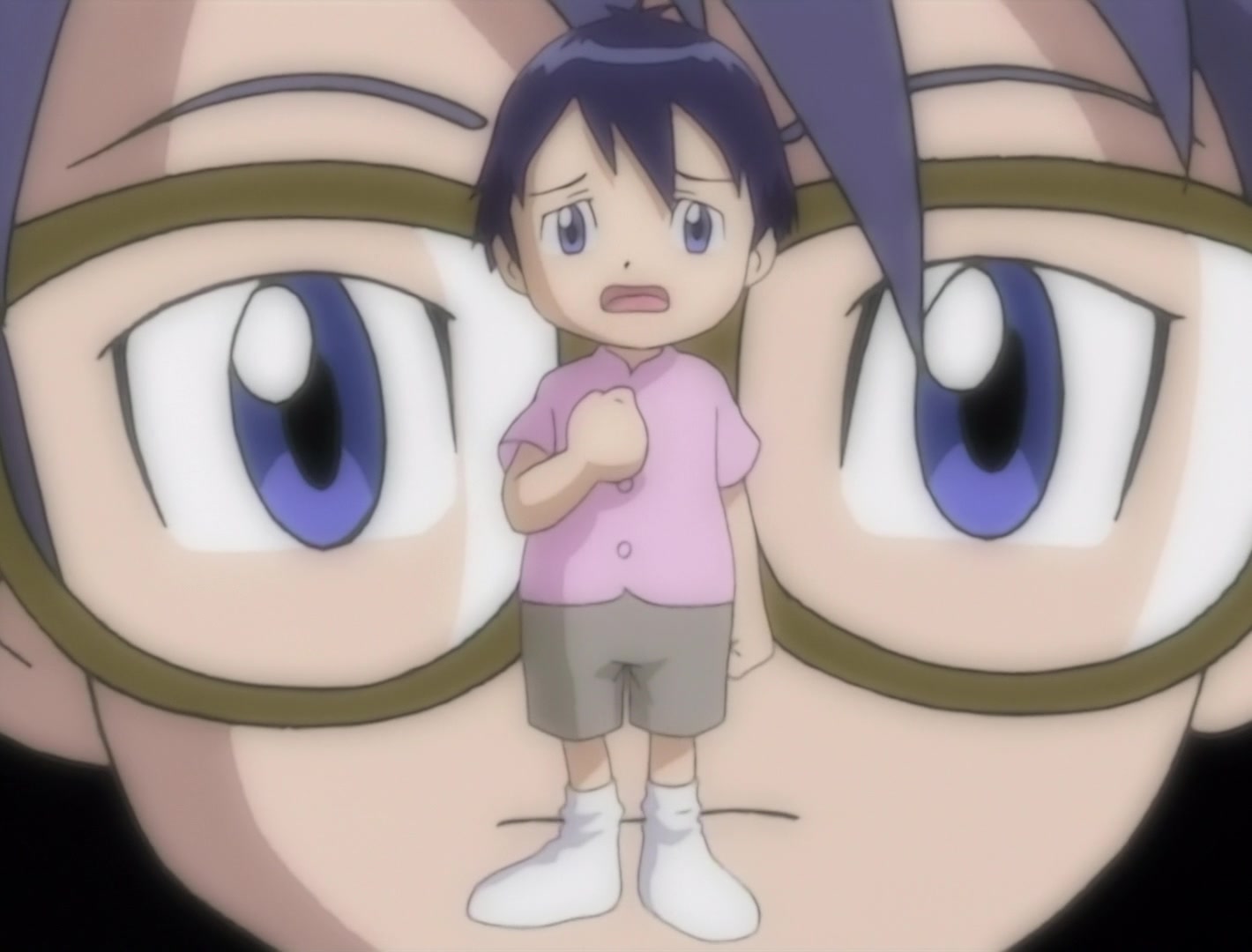
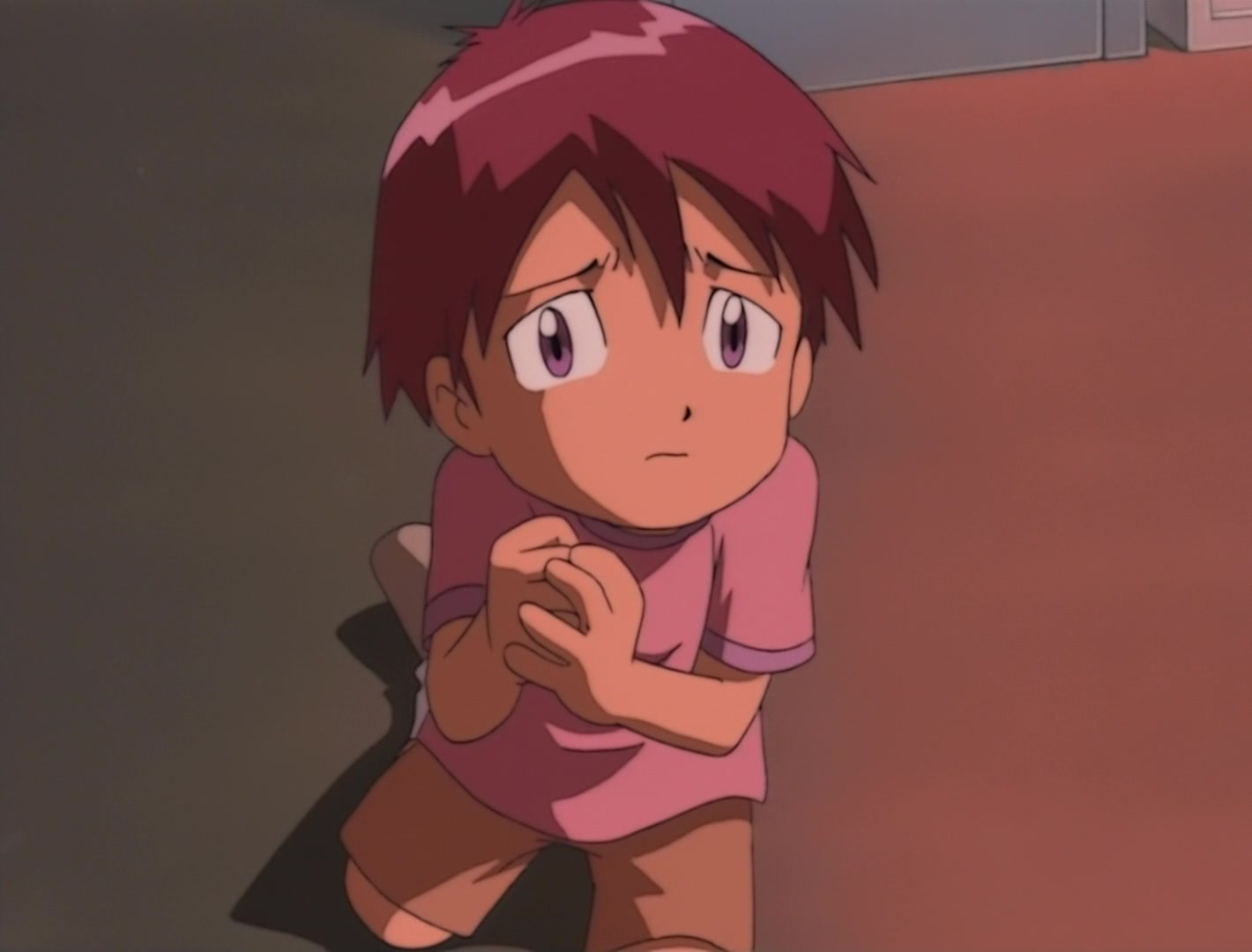
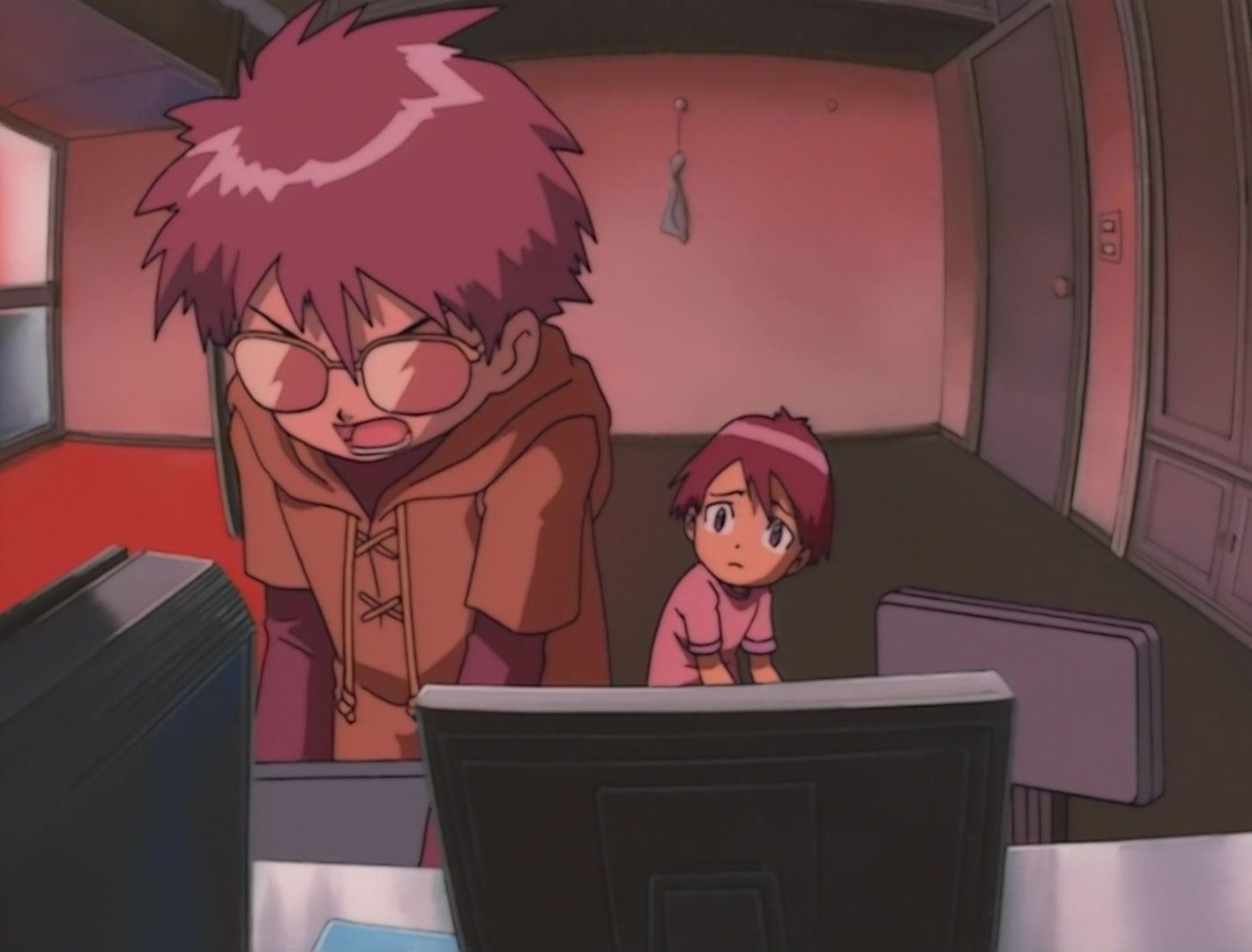
So he, too, grows resentful. He's a neglected child who wants love and attention, and if he can't compete with Osamu, he’ll never earn it. Only if Osamu is gone—
But then he's gone, and nothing gets better. Ken hadn't really wanted his brother to leave forever. He just wanted to be loved by their parents the same as his elder.
Now that Osamu is gone, though, his parents haven't turned to love Ken. They're mourning their loss. It's a deep and tragic loss. Of course parents will be buried in grief when their beloved child dies.
Their own grief blinds them to their other, living child. A very young boy, who also fiercely, achingly misses his brother, and needs to be seen and loved and supported through this the same as his parents, and by his parents.
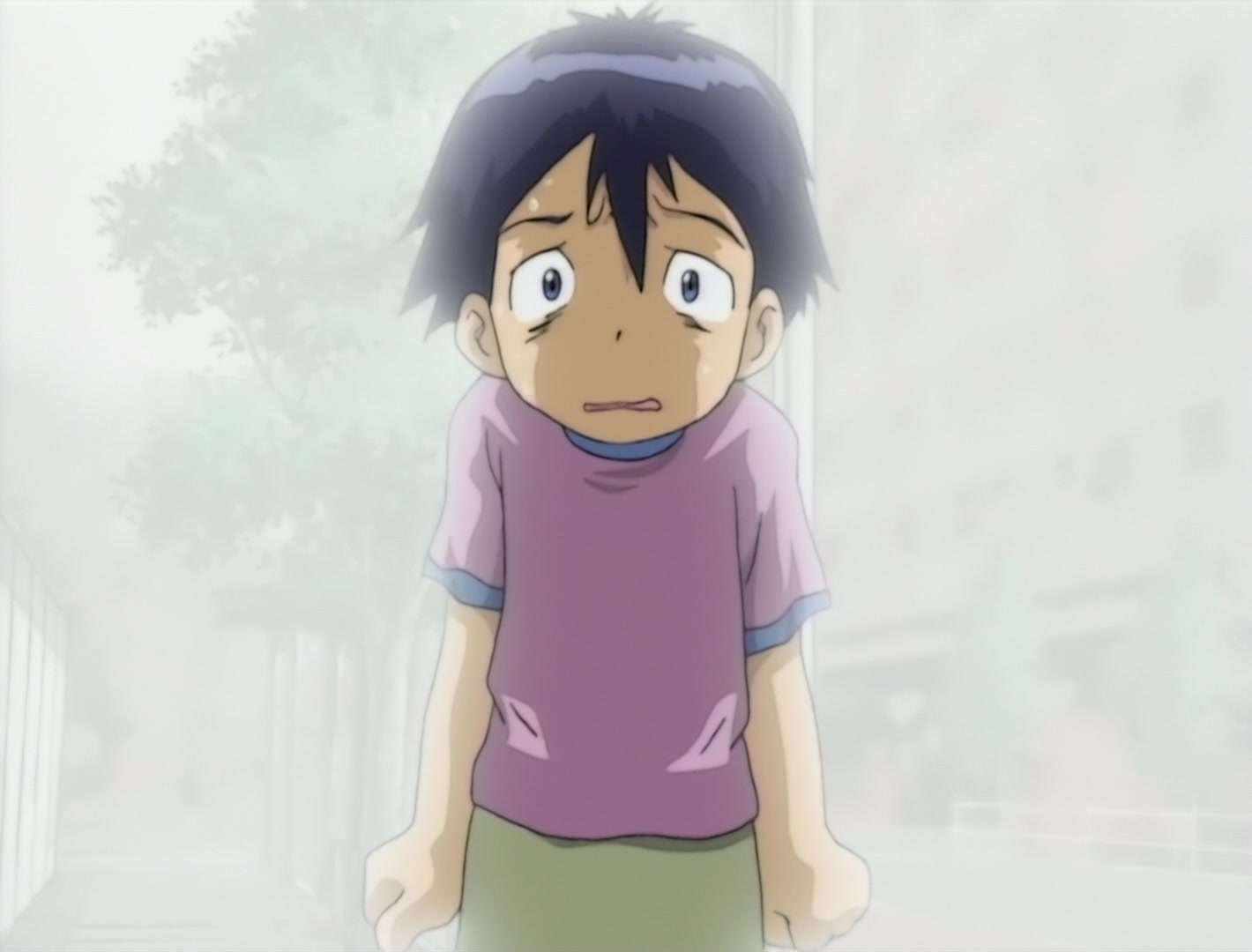
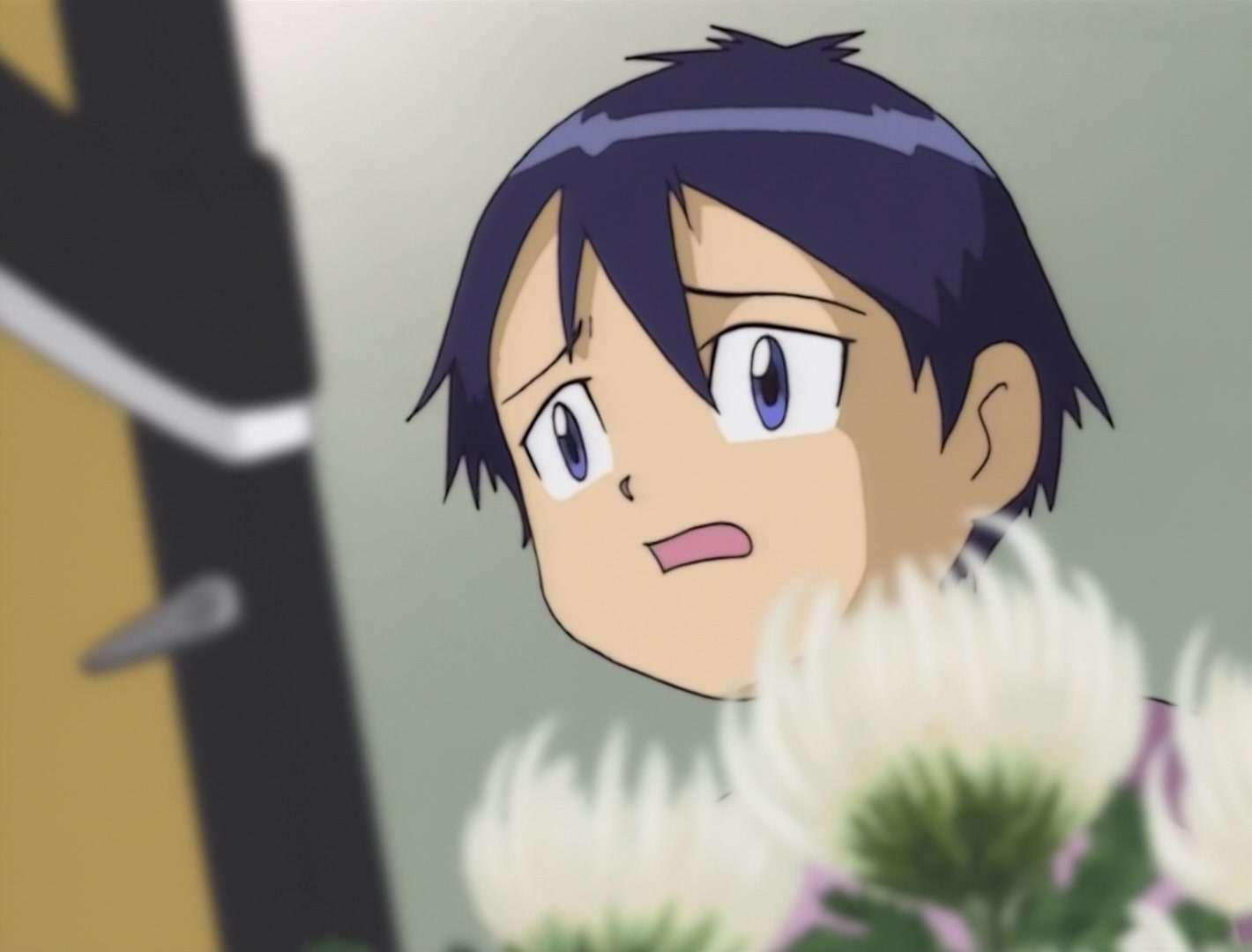
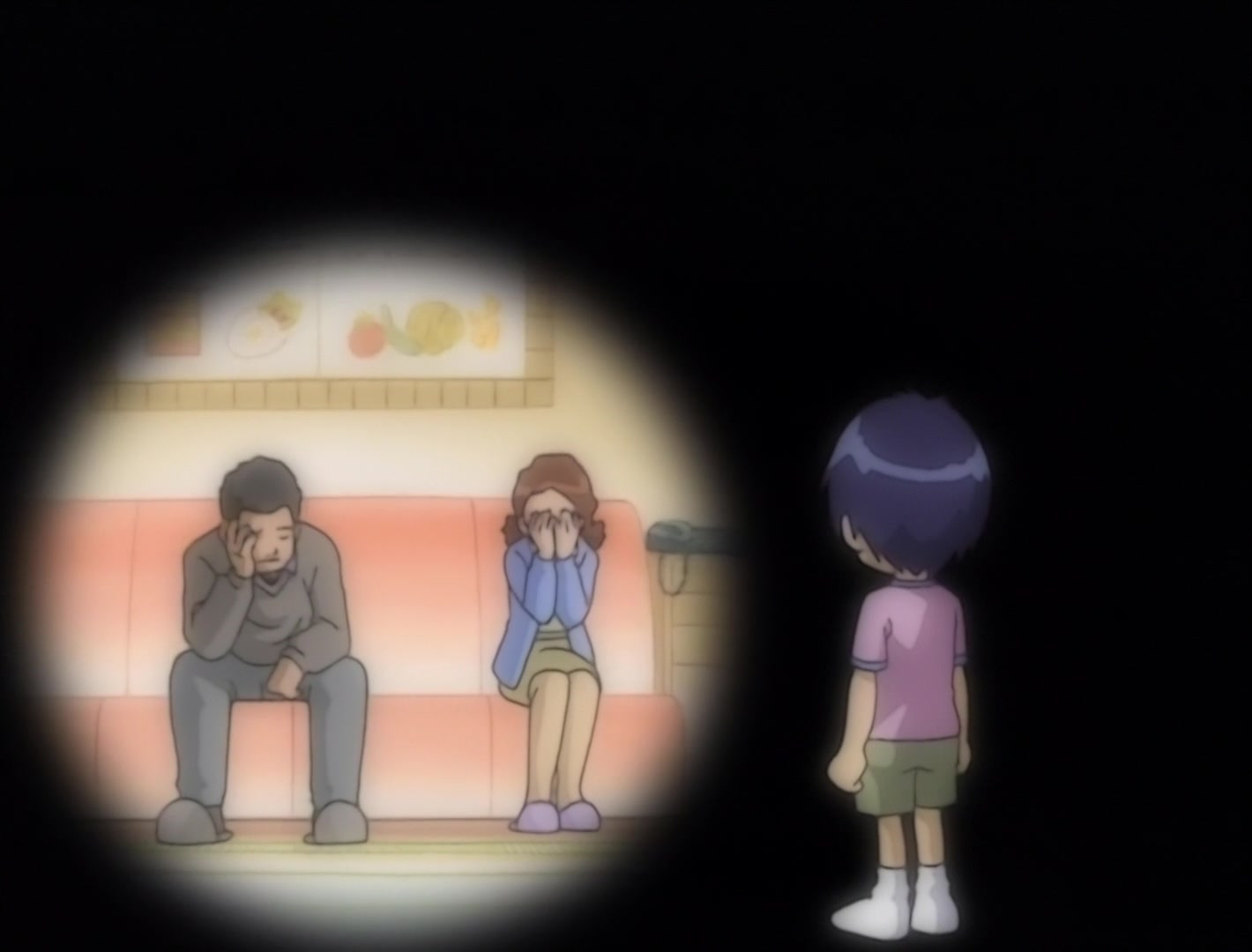
Let's fast forward. Ken is trying his best in school, and still numbingly sad from the loss of his brother. He's performing better than previously, but his heart is dulled. And then there's an email, telling him to take comfort in the fact that Osamu is in a better place now, but also telling him to claim what's rightfully his. Nobody will stop him now.
So he does, but the darkness eating him from inside means Ken lands somewhere that isn't the digital world. He finds himself at the edge of a dark sea, and when he dips his Digivice into those dead waters, it morphs before his eyes. And in this place, encouraging the worst of him, Ken has been handed the certainty that it belongs to him. This is his and only ever his. The Digivice, sure, but everything, everything he's been denied ought to be his.
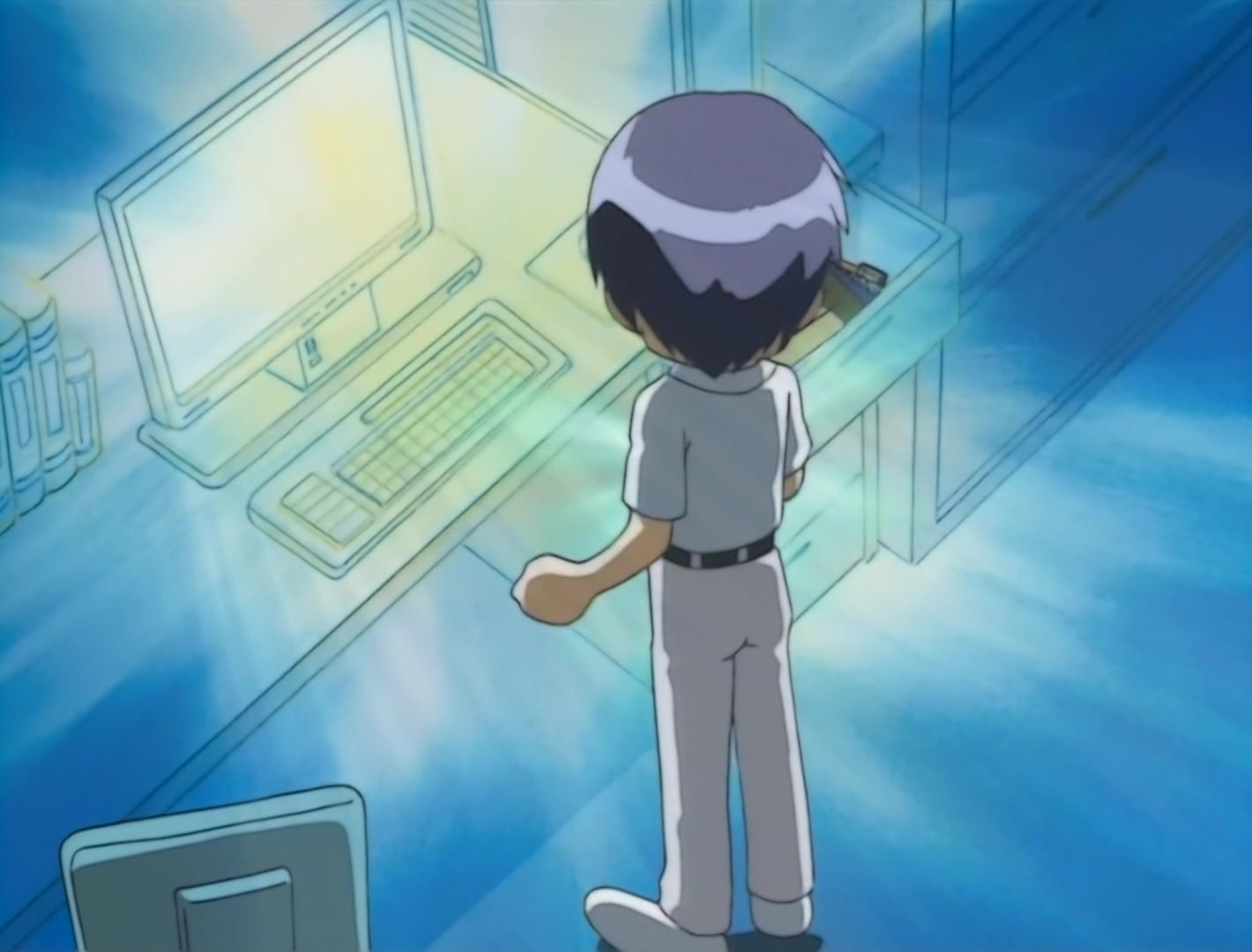
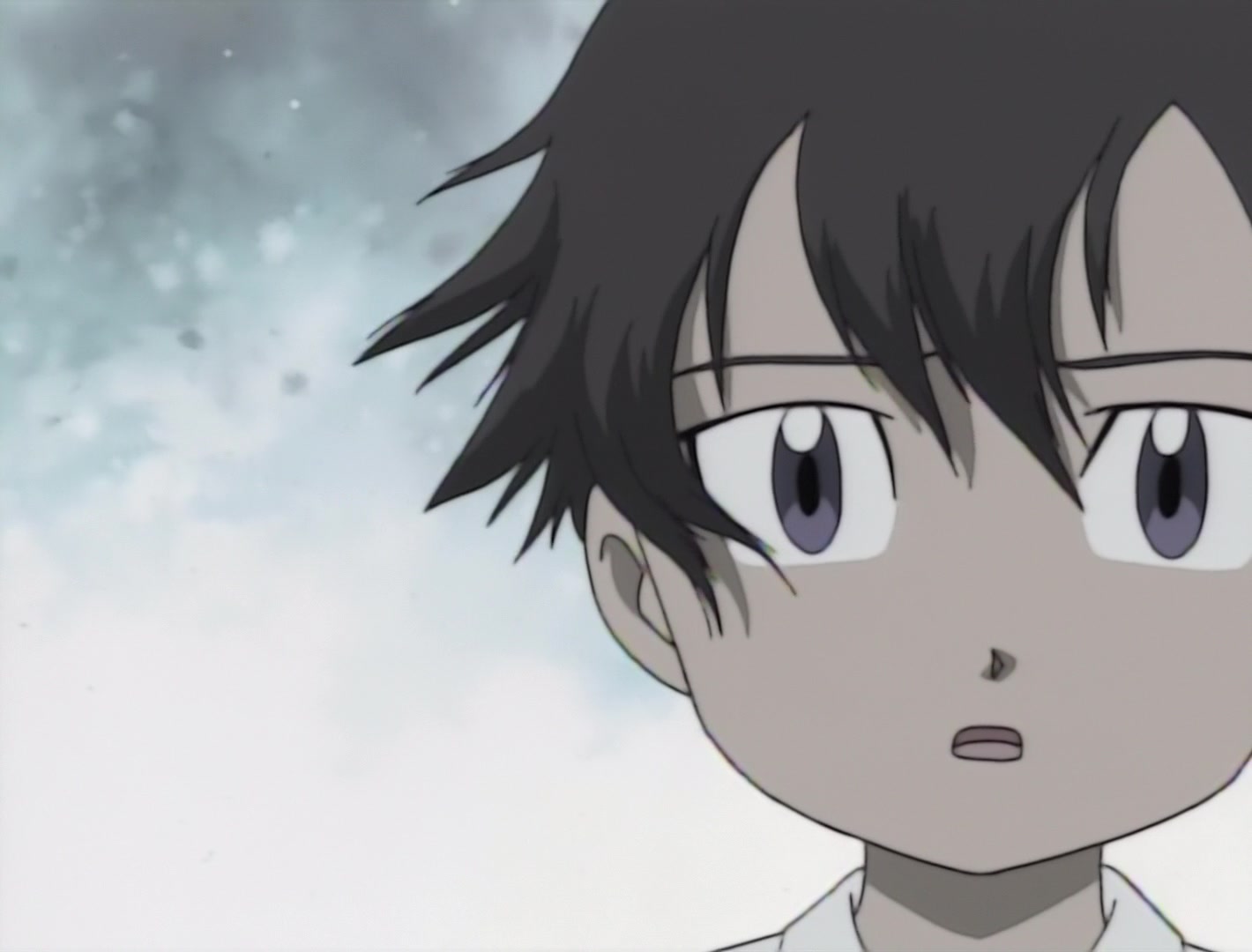
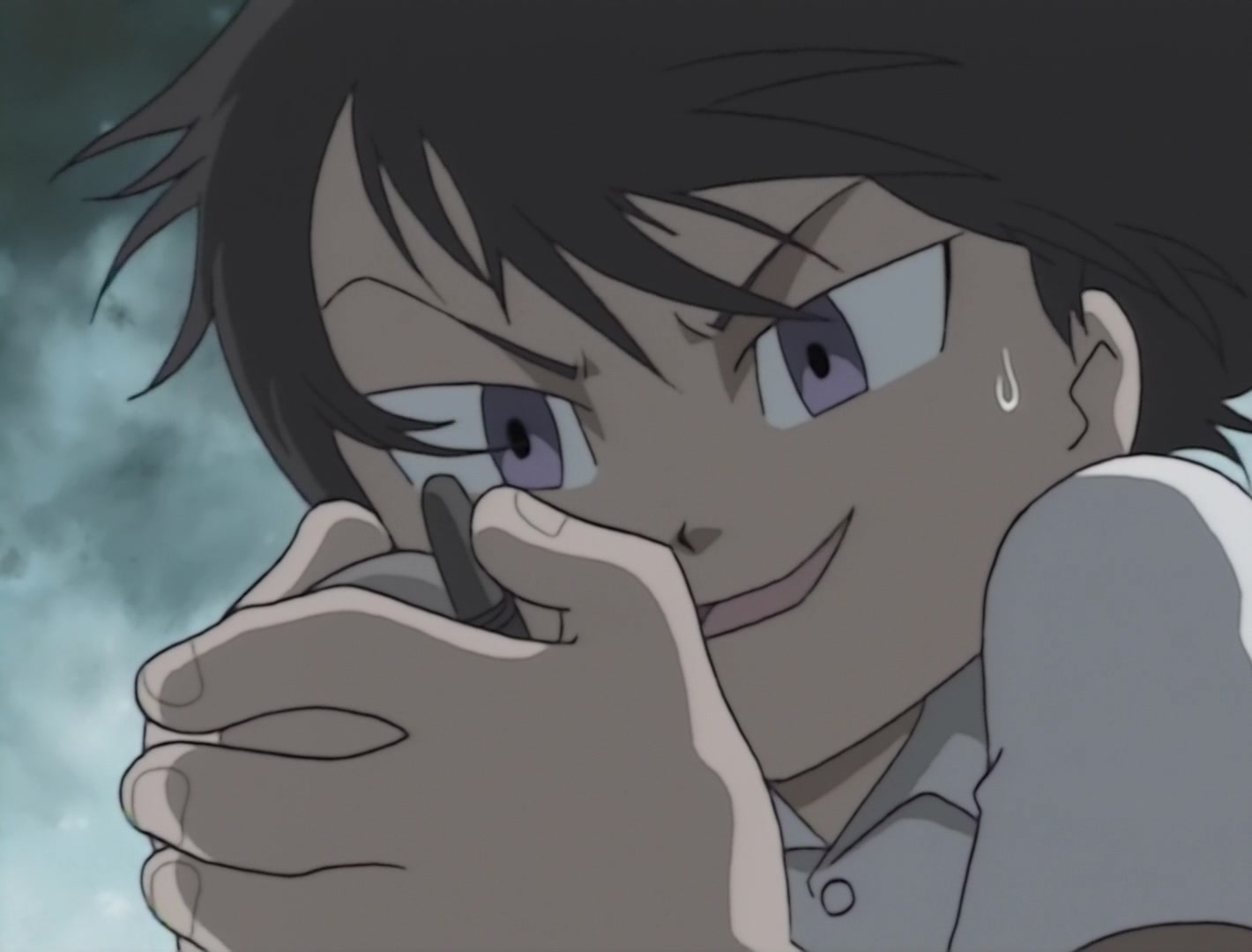
And he begins to excel. And he earns his parents' love and attention for it. But still it rings hollow, because their framing is about how it's like their precious Osamu has returned to them, in the form of his baby brother growing up to model him. So even this praise isn't Ken's, isn't only his, isn't enough.
There is one place wholly untouched by his brother's ever-looming shadow of influence, however. Something that can only ever be Ken's. The digital world.
Osamu was the best. He didn't have time for others because he was too busy doing important stuff that nobody else could understand. His bitter frustration leaked out, and he lashed out at those around him. He had to be perfect, and anyone or anything that interfered with such a monumental task needed to get out and stop disturbing him.
And so the Kaiser is born, subconsciously continuing to mirror Osamu in appearance. Because even as Ken is claiming something for him and only him, there's that ever-present intrinsic knowledge that it all by right belongs to his brother, no matter how his own mind blocks Osamu from Ken's memory.
His brother, and his partner, and his last adventure, none of that is important to his mission and so none of it remains. It's just making this world his. And he lashes out at any interference. These stupid children need to stay out and leave him to his task in peace.
Because he is perfect, and this is what he is owed.
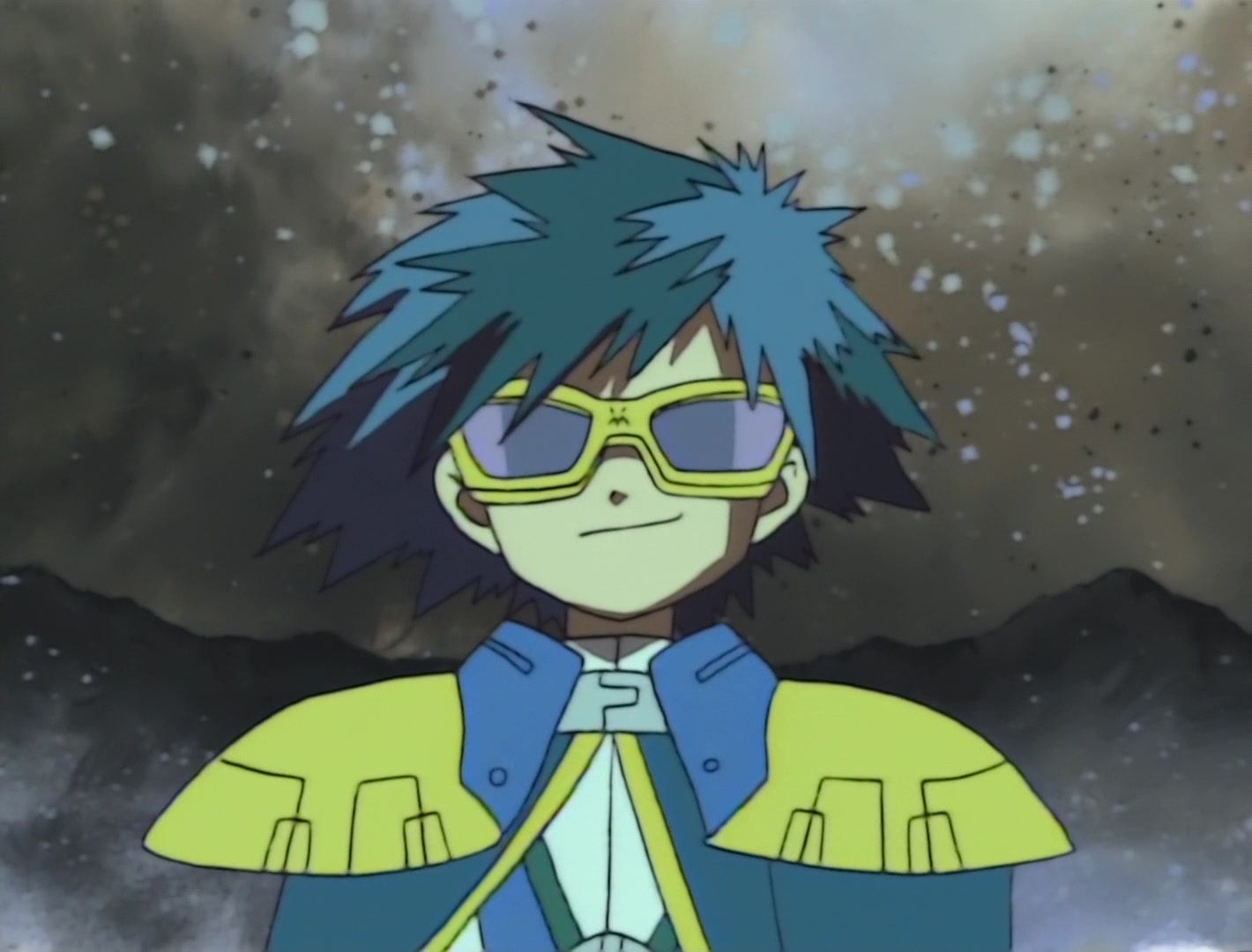
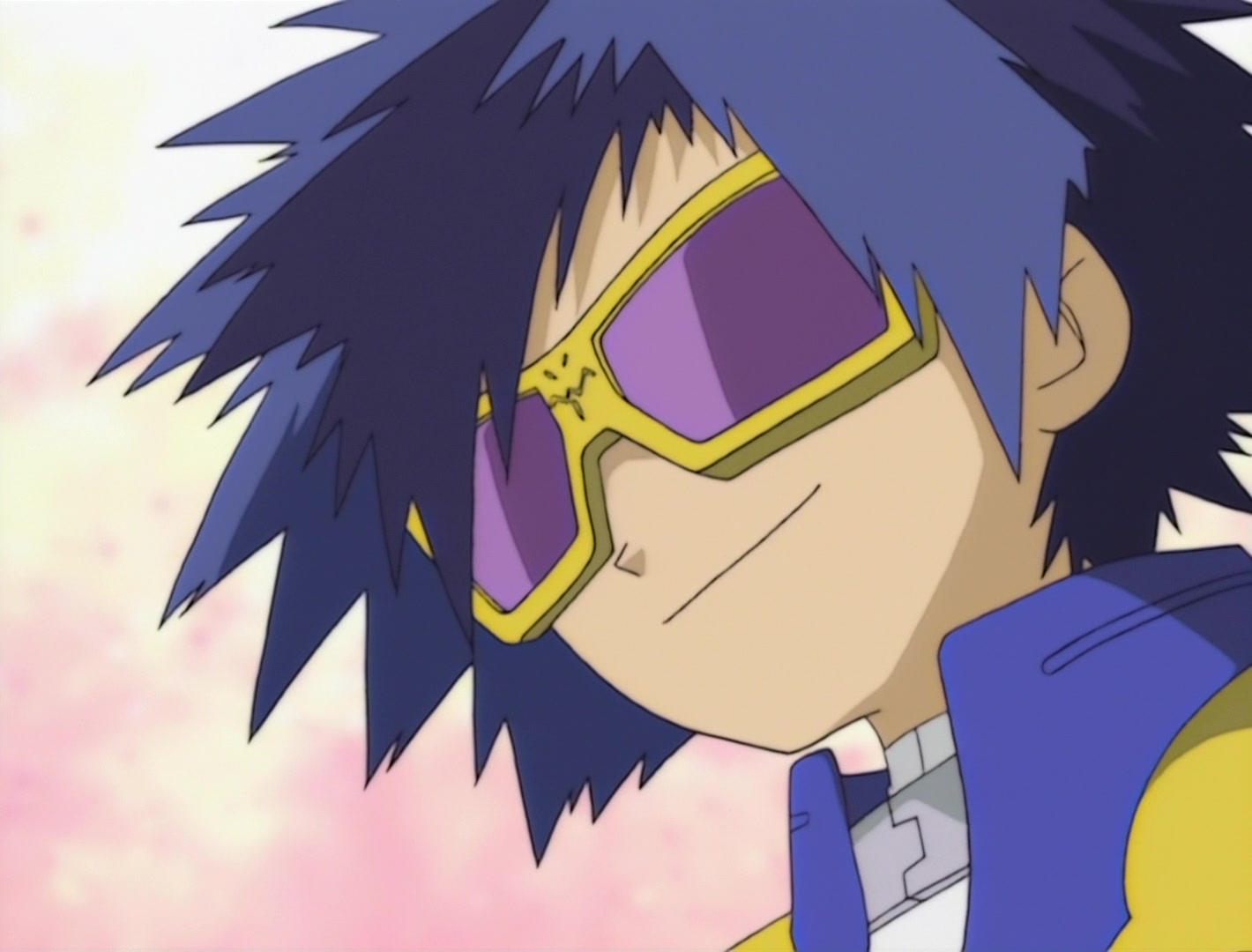
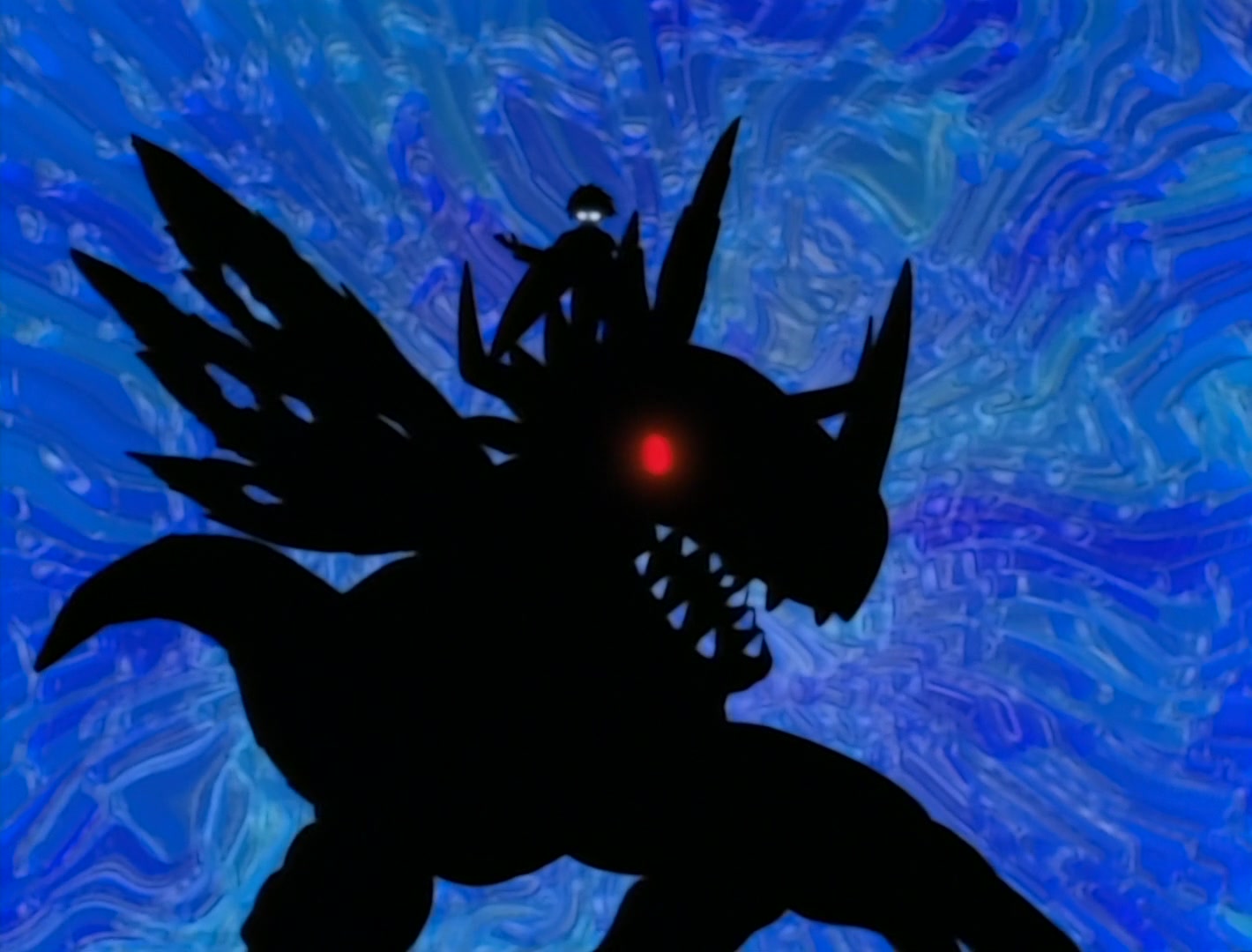
Except he's not, and owning this world is not owed to him at all. And the pressure continues to rise and the cracks keep growing and if he doesn't crush his opponents soon, it will all fall down like a tumbling house of cards, again leaving him with nothing.
Of course he's frantic in trying to make sure that doesn't happen. And of course those cracks grow to fissures as the pressure increases. Until he finally shatters, himself and all the blocks clogging up his brain. The memories come pouring in alongside the horrifying crushing guilt, the weight of past and present both washing the pathetic façade of the Kaiser away.
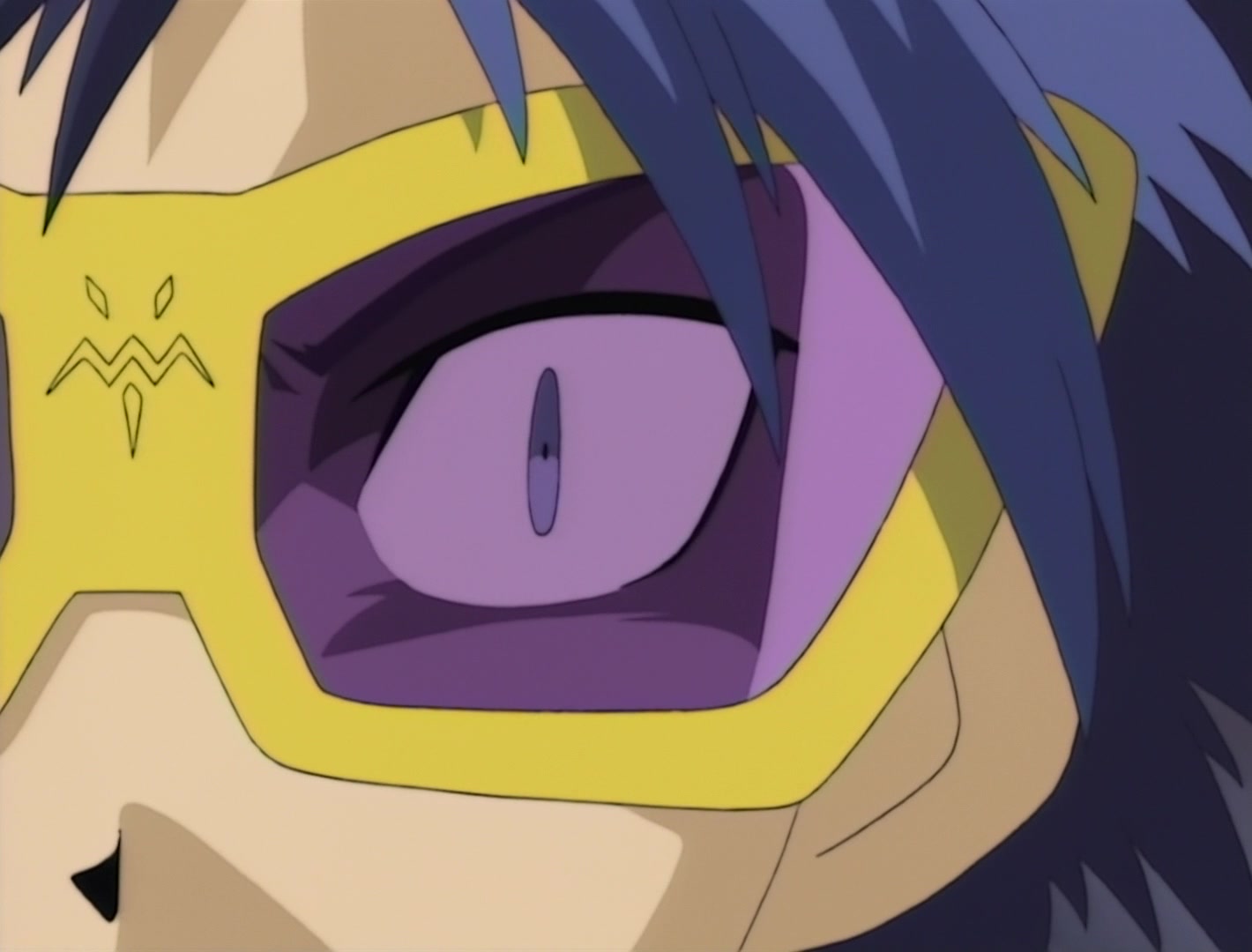
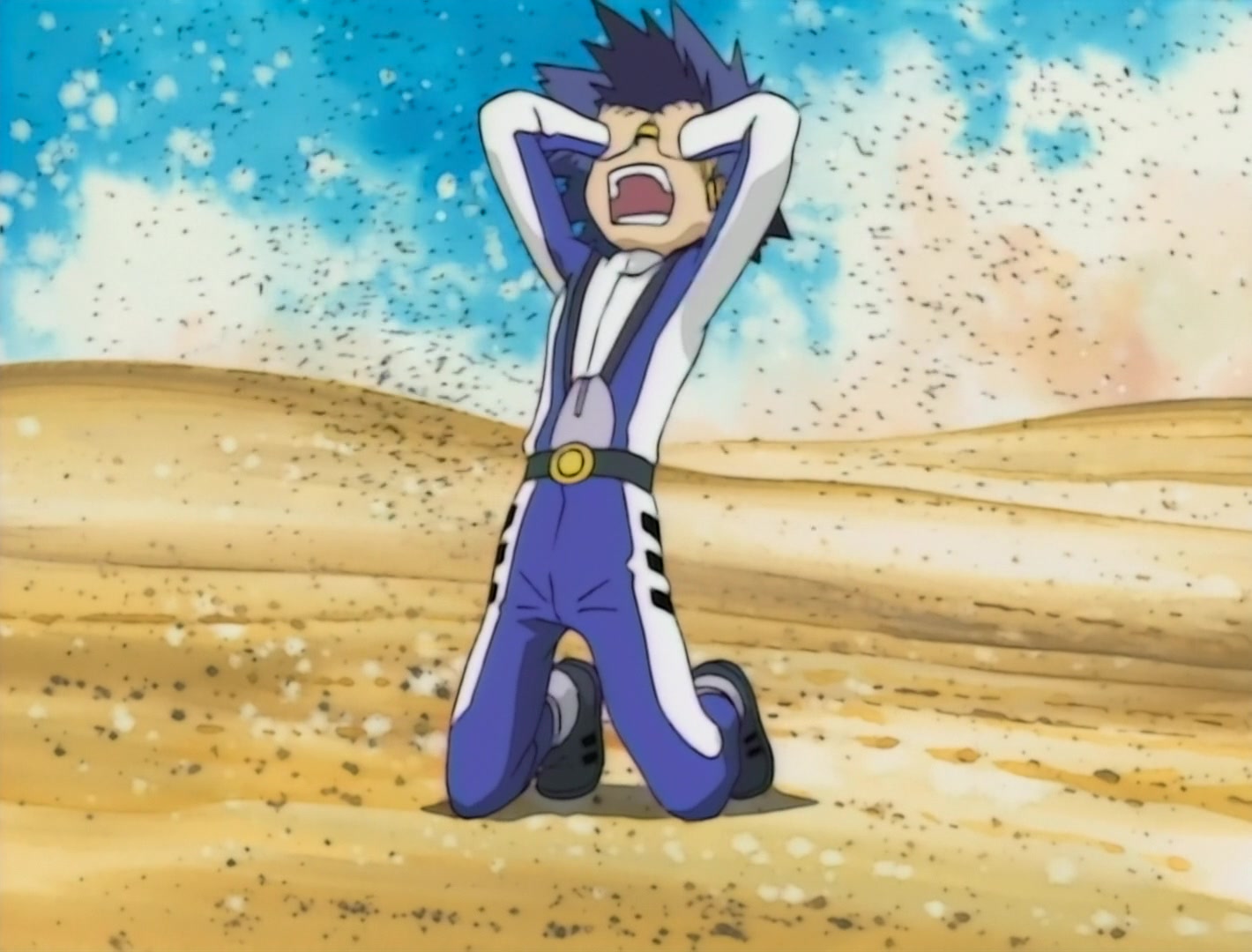
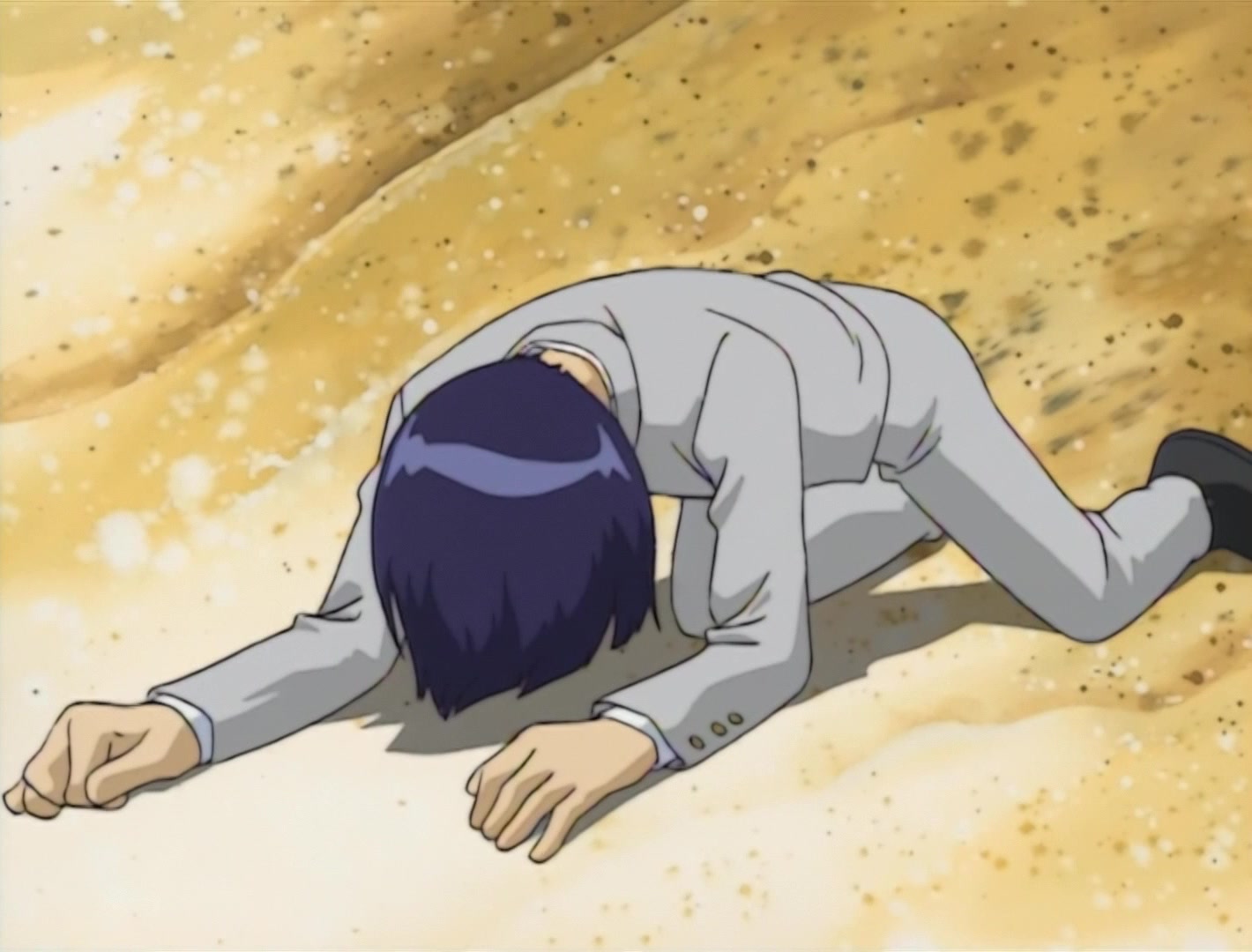
Now it's just Ken again. And nobody loves or cares about Ken. Except Osamu had. And so does Wormmon, but Wormmon shatters into pixels in his arms. Ken has managed to lose the only people who saw him and loved him for him, and in his own mind, both of these losses are entirely his fault.
Wormmon’s death is, in fact, a direct consequence of the actions Ken took as the Kaiser, unlike Osamu’s freak accident. But also unlike the loss of Osamu, Ken is given another chance to do things right this time around, make better choices, and be only himself as he does it.
Thankfully his parents seem to also get a frickin wakeup call this time around, good God—
Struggling Up from the Depths
Okay, Ken's true self is back, and now he has to deal with the debilitating burden of his own sins. You know, his abuse of Wormmon, his cruelty towards the entirety of the digital world, his enslavement of every digimon he encountered, and all his nasty internal thoughts and feelings. Yay!!
I could spend pages on Ken's reconciliation with Wormmon, and the important changes to his home life, etc. (insert the we don't have time to unpack all that image.) But we're here for a specific reason, so I'm jumping ahead to Ken and Stingmon playing vigilante of the wrecked digital world.
He has no intent or interest in joining forces with his fellow Chosen. While it's easy for outsiders unaware of his spirit journey coma to assume it's because he considers himself above them, we know it's the exact opposite.
Ken is keenly aware of his identity as scum of the earth. This means joining the other Chosen would cause conflict within their group, because it's insane to think they'll all forgive him—it’s insane enough that one of them does. But even moreso, he means to take the whole burden of the digital world upon his own shoulders. It rests squarely on him to make amends and fix the mess he's made. The only way to atone is to tear down every ugly tower with his own hands. And whatever scorn or violence towards him is justified, so he'll accept his previous victims’ hatred without any protest.
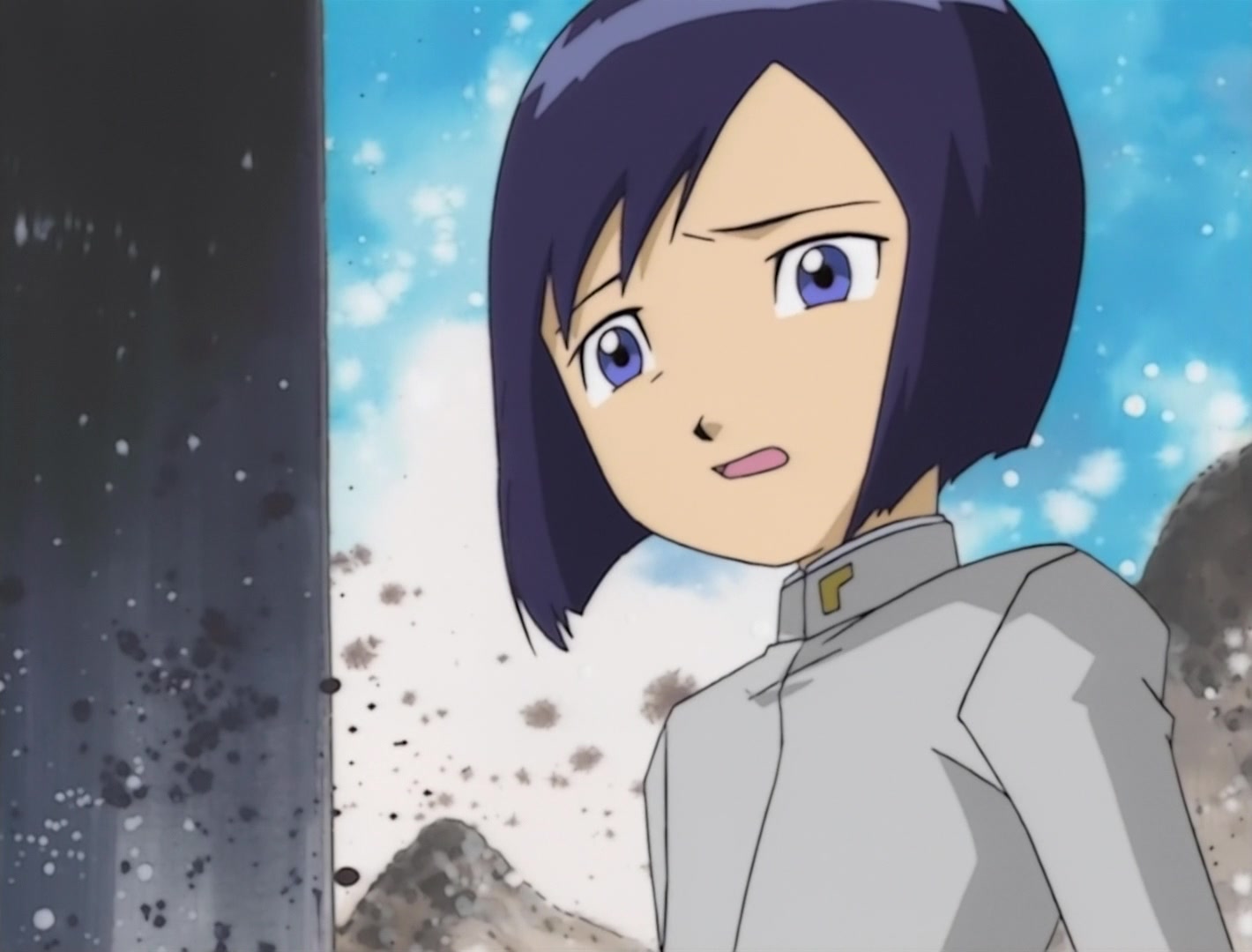
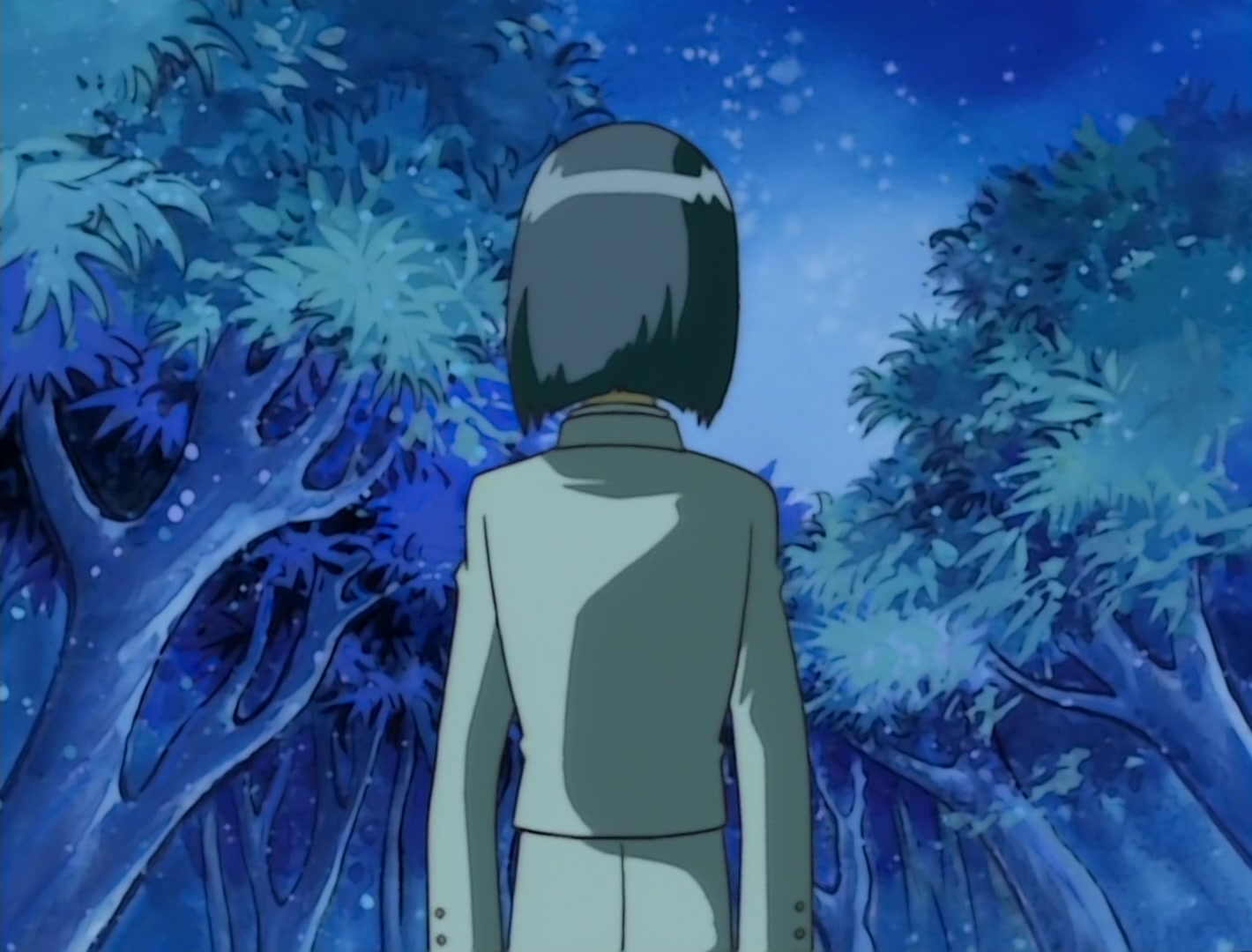
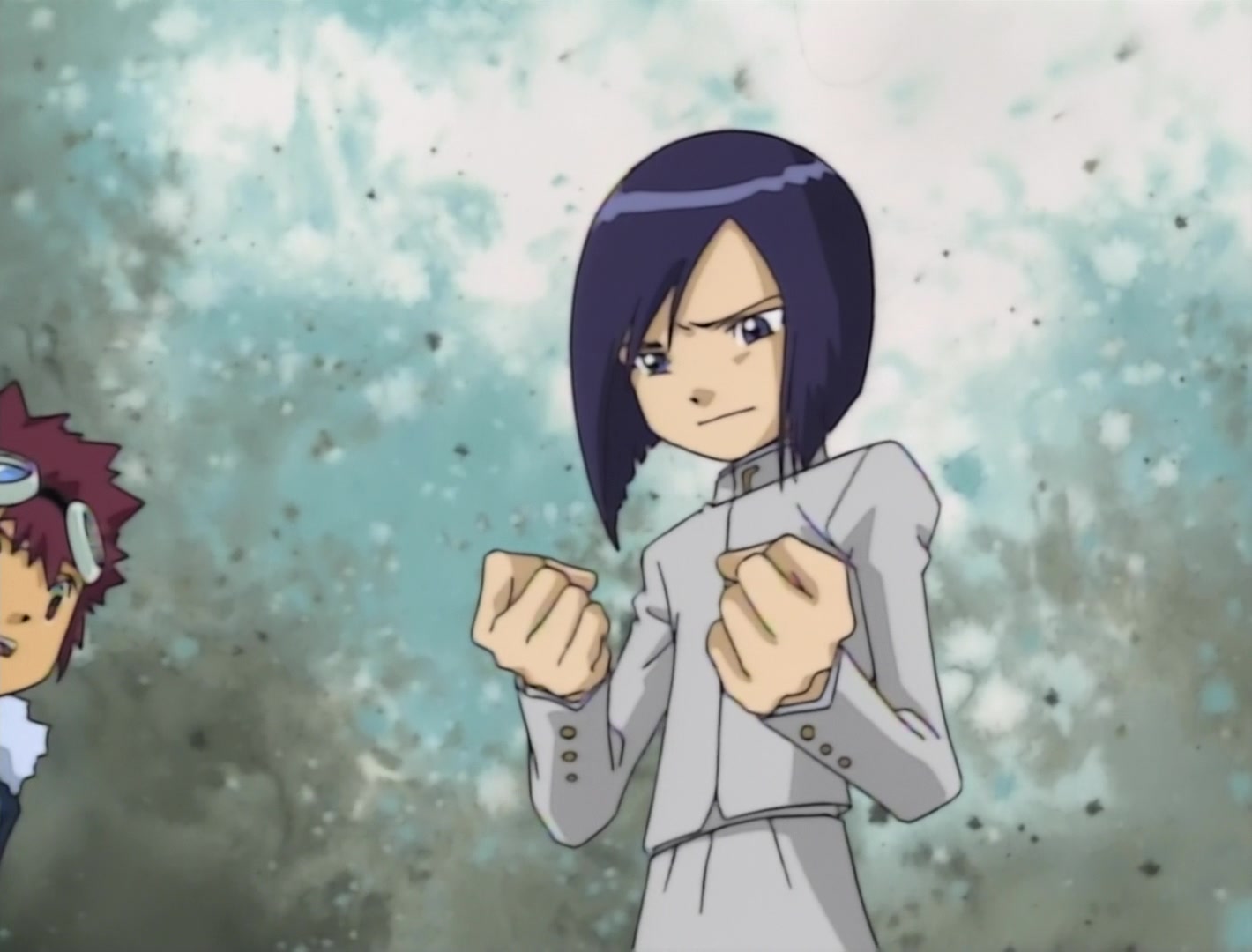
So when his former base goes into meltdown, of course he's going in to contain the damage. And of course there's a slim chance he'll emerge alive. It's desperate and poorly thought out and the only path forward Ken sees with the blinders of his own self-loathing shame firmly in place.
Daisuke very helpfully reminds him that this isn't just reckless, it's fucking stupid. A singular act of martyrdom? How is that going to make a difference? How is that going to make anyone's lives better? How is he supposed to actually fix his mistakes if he's dead?
This self-sacrificing bullshit is bad and he should feel bad for indulging in it. Wallowing in self-pity won't help him atone or change or make better choices or improve anything.
And he can't fix everything alone. Because he isn't perfect. He needs help and support, same as everyone else. Doing this by himself isn't just foolish, it's selfish! It's the same crap as before from a different angle. But look at what they can do when they're united instead.
Which, you know, takes a hot minute to get through, and really doesn't stick too well, what with every bad thing ever that happens for months seemingly tied to Ken's own previous poor conduct and misdeeds and failings. Like how Blackwargreymon exists, and Demon’s invasion, and how Oikawa gathers up a bunch of kids in a van to receive a copy of that horrid seed. But they're working on it!!
Right up until the world of wishes, at least. Even then, Ken's illusion dissipates away into nothing once he's reminded of the truth:
You can't change the past and you can regret it and try to make up for it as best you can but stop dwelling on it and devaluing your own life and handing it to those who hate you due to past misdeeds on a silver platter, that won't ACTUALLY help anyone, least of all make you a better person! Take back your own life and seize your own choices! Stop being stuck in the past and forge your own future!
So, What Now?
What we’re left with is a boy who has suffered far too much in his young life. One who doesn't have an intuitive grasp on what it is to be lovingly guided by his parents. One who takes everything on as his burden alone, for better and for worse, and is only just now learning what it's like to trust somebody enough to share the load.
Someone who has to learn that while he must always keep his kind heart, that doesn't mean simply being a doormat or a punching bag. That he needs to take conscious steps to be gentle even as he grows assertive and reclaims what does belong to him.
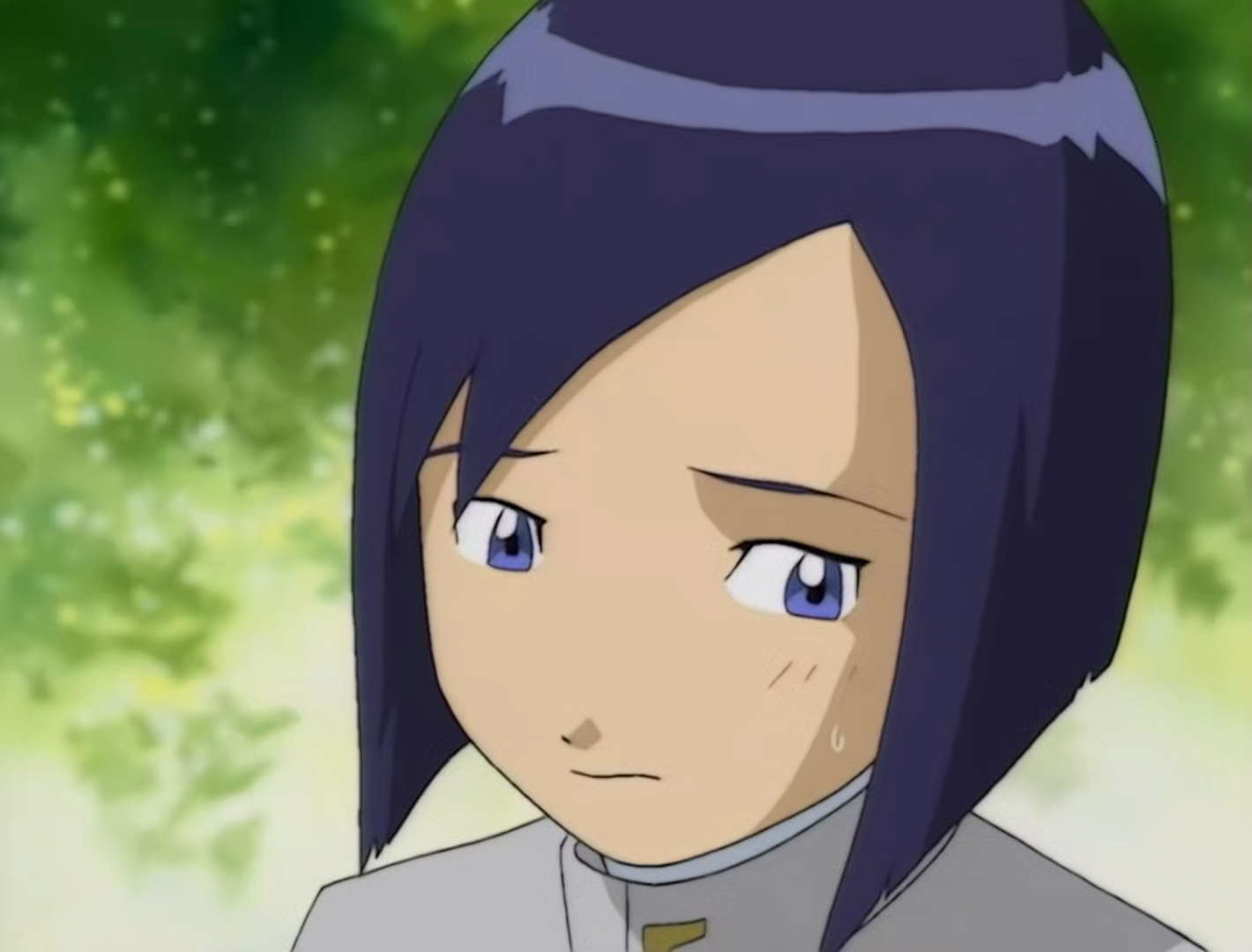
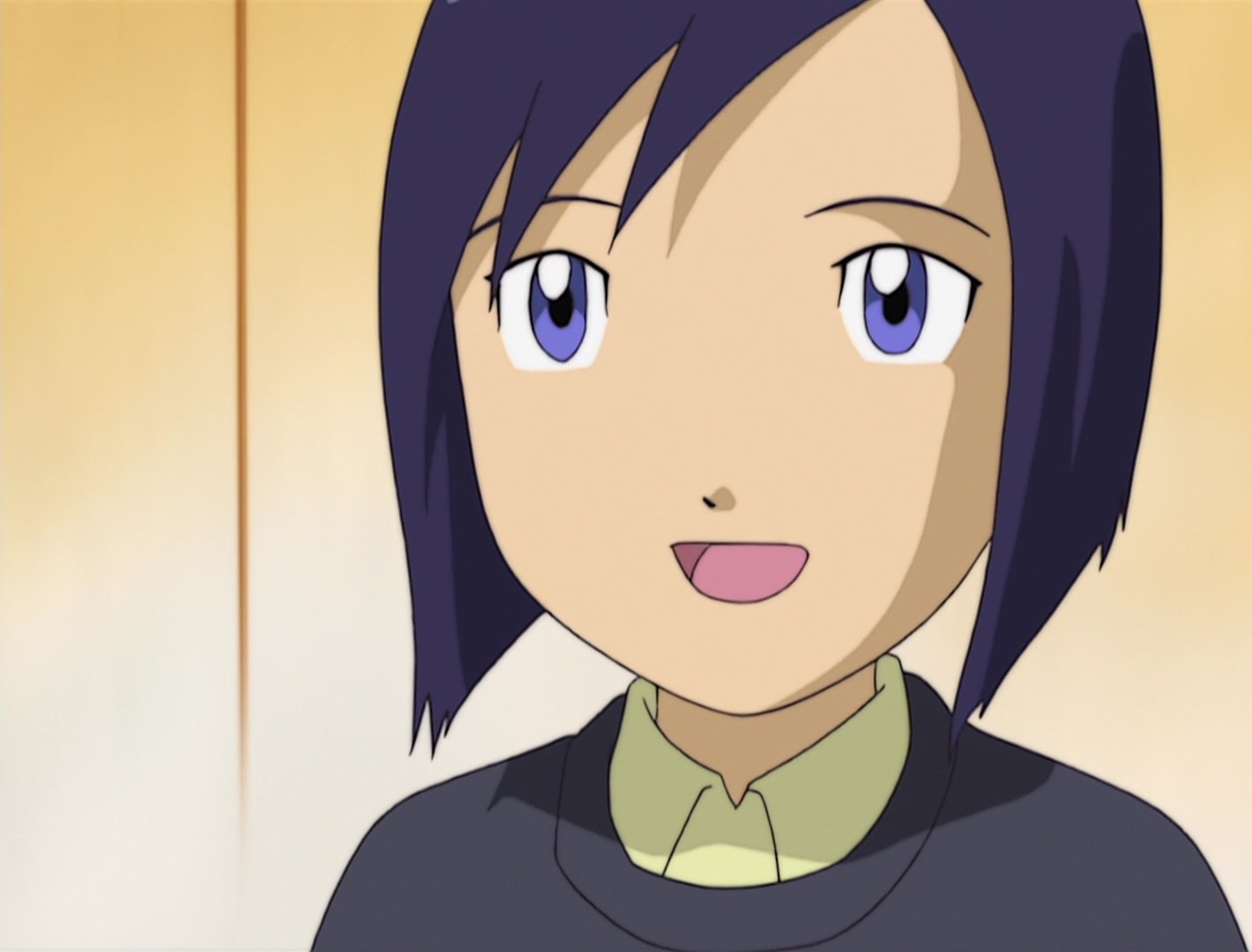
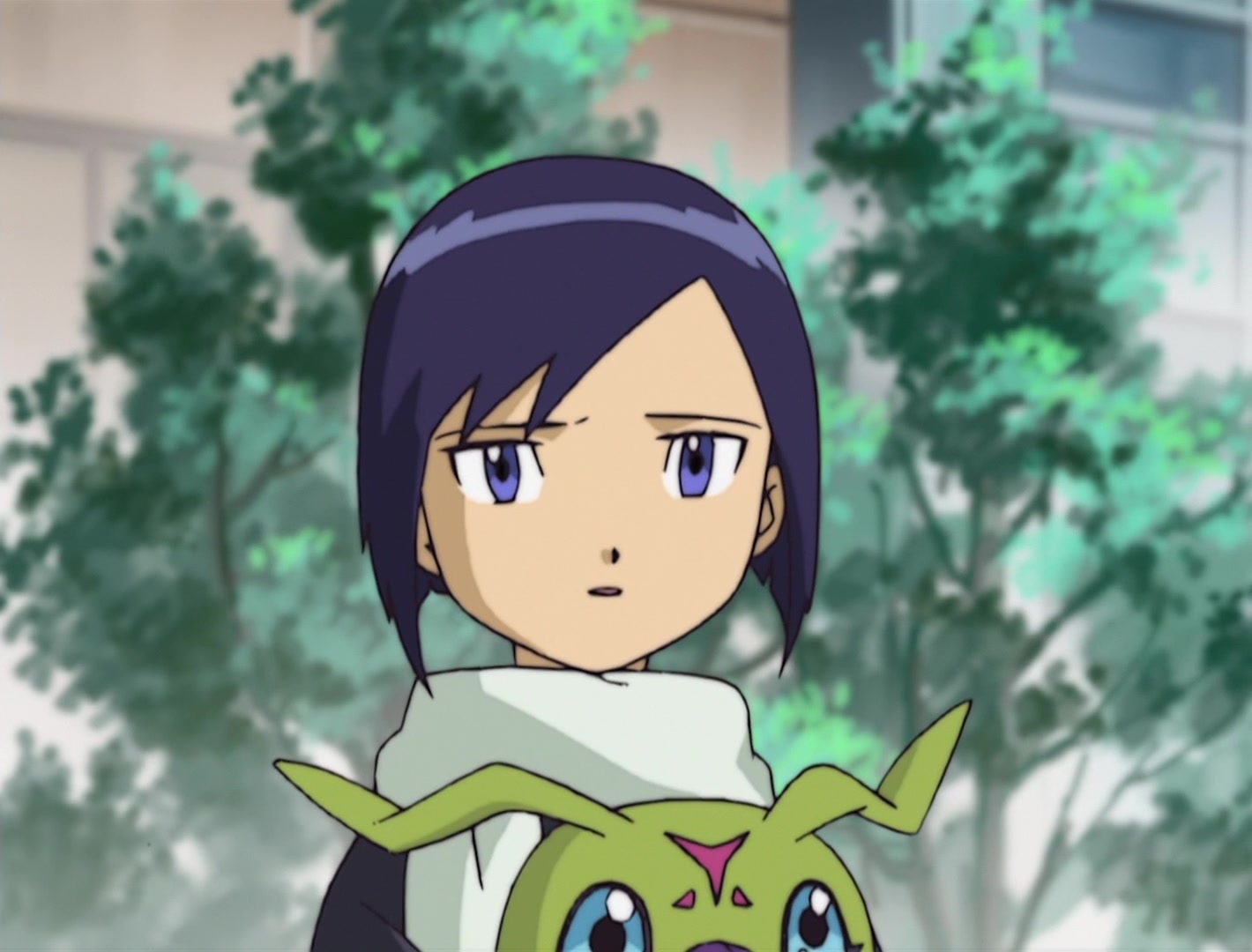
Coming to 02: The Beginning, and more specifically the third audio drama released alongside the film, and that growth is on full display. Ken and Wormmon more than anyone can offer genuine compassion and insight into a broken partnership, and what it means to move forward and start anew. And it's Ken that pulls Lui out of his own dark ocean musings, by reminding him of the importance of building that new path together. It's the one and only mention of the Kaiser we get, and it isn't good, but he hasn't mentioned it to self-flagellate. Ken shares his past so Lui, too, can understand that he's not alone here. There are others who know pain, and are ready to ease his destructive guilt.
And it makes me happy cry to see him do that in canon. But damn, that's a really vulnerable position, and if there's another voice there to again overwhelm his own…well, things might turn out very differently...
Takaishi Takeru [高石 タケル]
Moro: Sparrow has a PhD in Ken, which is why I had her write his section, but I definitely crammed a Bachelor's degree in Takeru since September 2023, so I'll be covering him! I love my awful son from the bottom of my heart, and he's been such a fun headspace to inhabit, so please understand that everything you're about to read comes from a place of love! I really love characters that are messy or have a lot of contradictions, and Takeru is such an excellent example of this... Without further ado, let's jump in.
Of all characters in Adventure 02, Takeru may be the most misunderstood, perhaps even more so than Ken. The average Digimon fan, if asked about Takeru, seems to buy whole-heartedly into his surface-level appearance, as though the front he is constantly holding up is the sum of his whole personality.
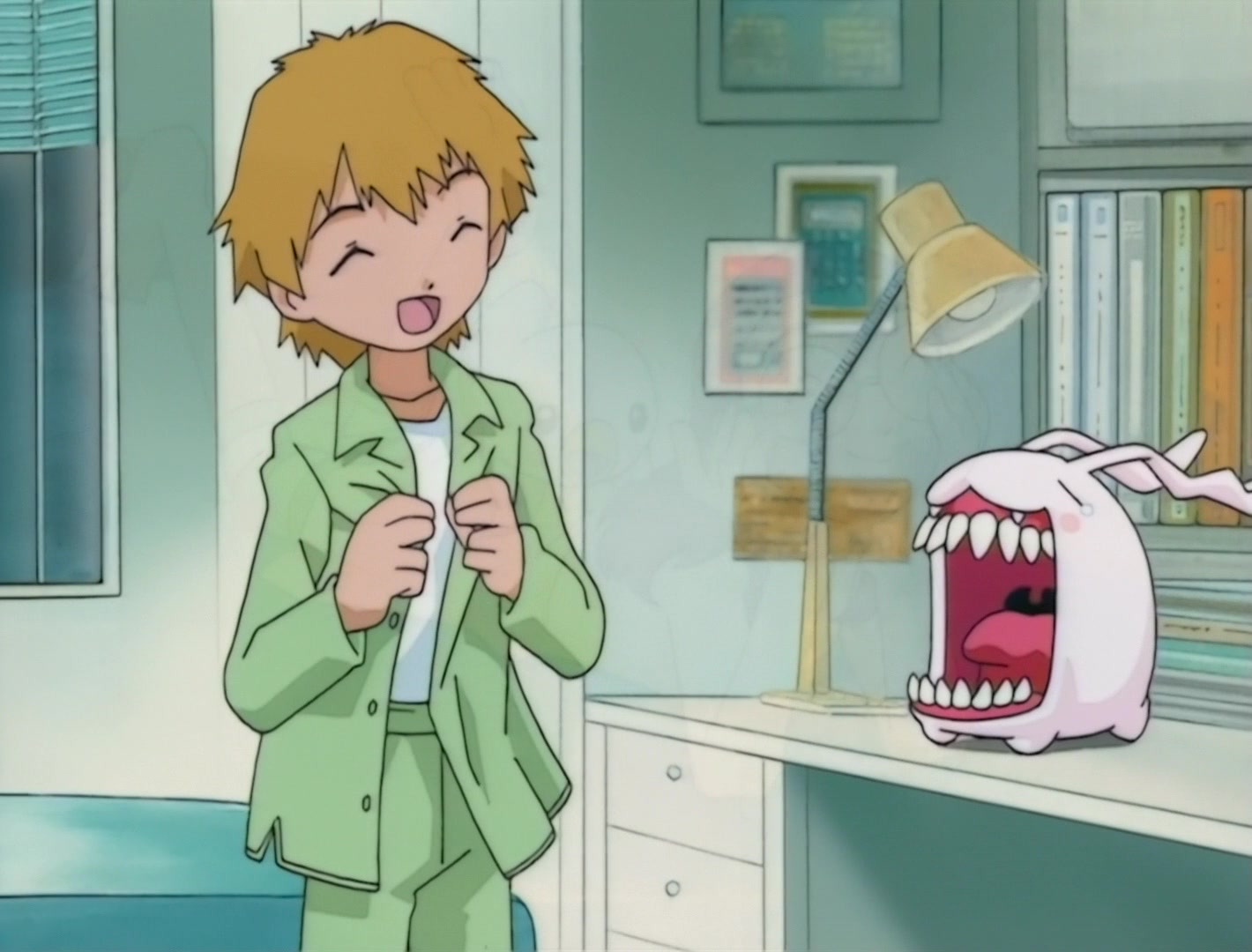
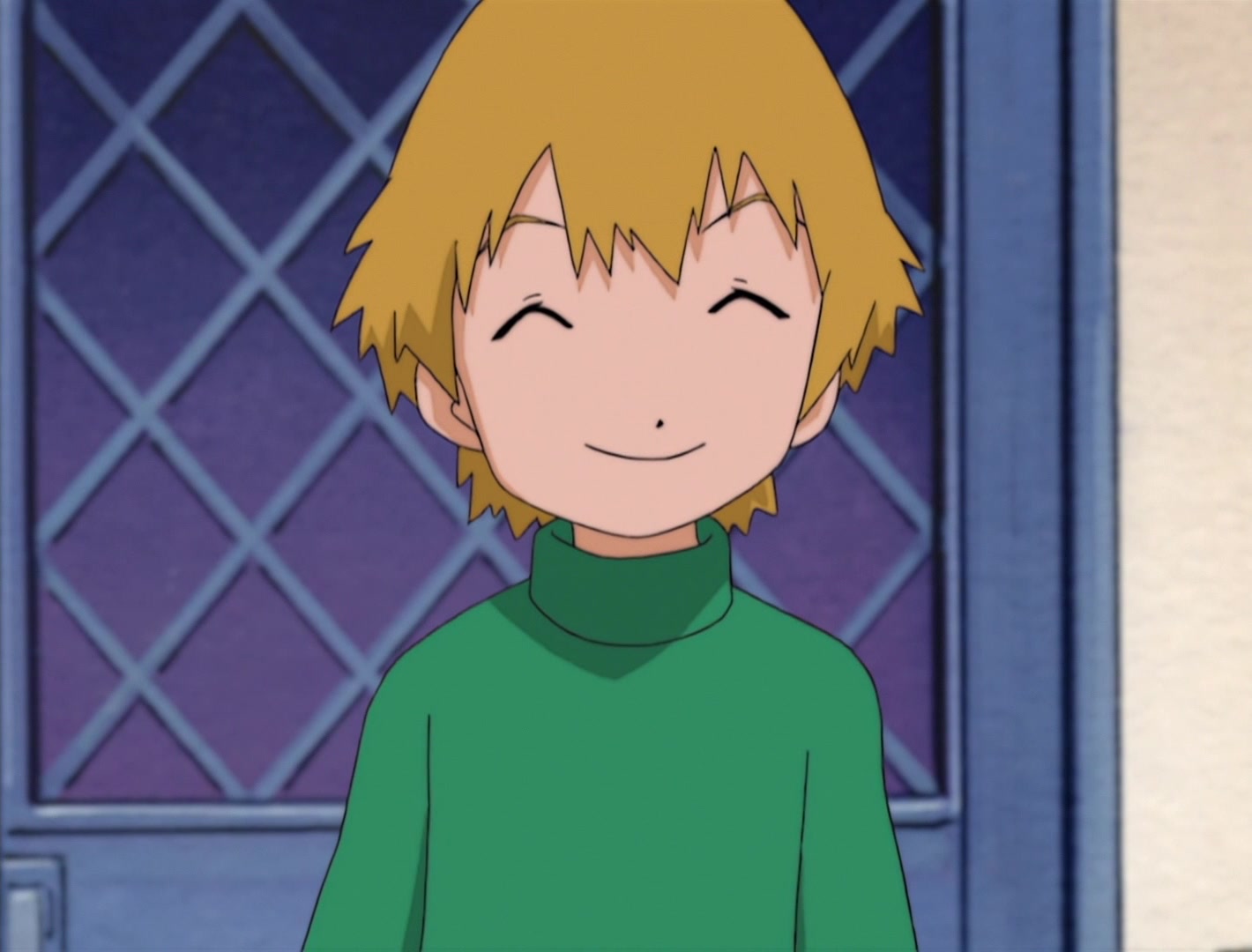
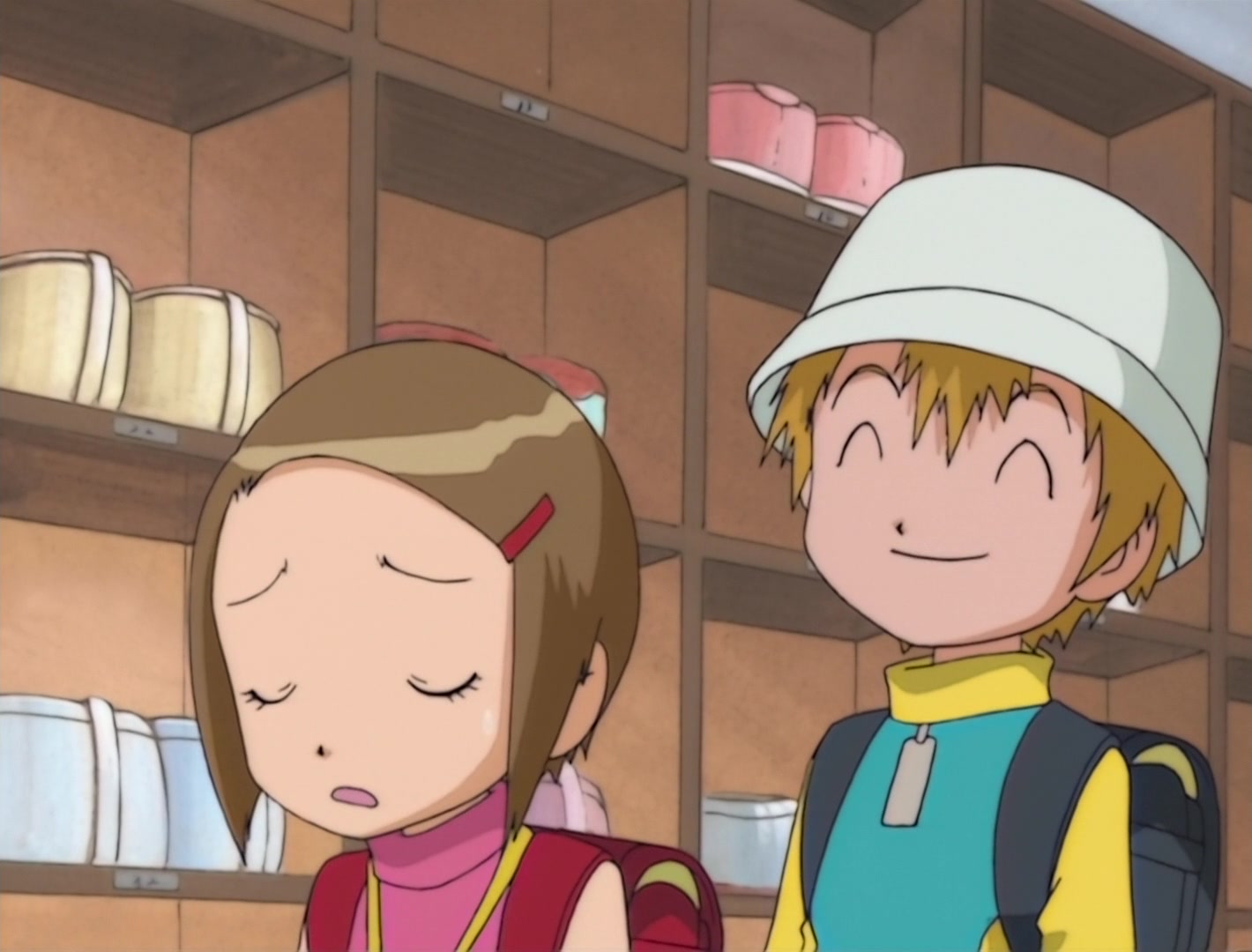
This is such a fundamental misunderstanding that comprehending who Takeru truly is as a character while still operating under this assumption is doomed to failure.
Takeru's core trait that causes this misunderstanding is that he is categorically unwilling to let others know or see what he is truly thinking and feeling. Crucially, he is not only obfuscating this from the people around him, he is also obfuscating it from himself. He is unwilling to let others see what might be bothering him, and he is also unwilling to acknowledge his own problems and in fact actively avoids doing so basically at all costs.
He always pretends everything is fine, no matter what, until suddenly it's not. This makes him incredibly difficult to read, since he's always throwing up a wall between himself and others, even those he loves and trusts, like Hikari or his own family. He doesn't see this as something bad in itself at all. As far as he's concerned, nothing about how he handles things is wrong at all.
For our purposes, I don't want to spend too much time digging into the relationship between Yamato and Takeru, but there's really no serious conversation to be had about Takeru without that, so we still need to get into it a bit.
It's no secret in Adventure that Takeru isn't handling the separation of his parents - and consequently, separation from Yamato - particularly well at all, but Yamato isn't doing much better at that point either, and Takeru's such a young child at any rate that his reaction is pretty understandable. However, even at this age the differences in how the two cope with this are readily apparent. Yamato is an open book of a boy who wears his every feeling on his sleeve, no matter how much he wishes he didn't. He focuses his energy on being a proper protector, a good older brother, on taking care of Takeru, despite his own problems, even if he isn't always terribly good at it.
Takeru, however, doesn't want this, and in Adventure, he buries his negative emotions under a stubborn façade of self-sufficiency instead, refusing to acknowledge his problems at all lest they impose a burden on his brother. This only works until something pushes Takeru far enough that the negative emotions get forced to the surface anyway, resulting in angry, irrational outbursts. This problem is very deeply ingrained, and he's not very effective at hiding it at all, as one would expect of a child that age. He's doing everything he can to hide it, but it just isn't very effective. It's evident to everyone that it's a front.
Angemon's sudden death in Adventure episode 13 only makes this worse, since Takeru never actually does anything to work through it. It's just added to the pile of Things Takeru Absolutely Will Not Think About. They don't exist! They don't bother him at all! He's Fine and everything is Fine. The narrative doesn't dwell on this trauma for very long, and we really won't see how deeply this affected him and how much of a trigger it becomes until 02 later on.
Cut 3 years later in 02, and it's readily apparent that Yamato is doing much better in terms of coping with the separation. While some of this can be put down to natural maturity with age, Yamato also has some self-awareness, and it shows that he's worked on dealing with it in the intervening years.
The same can't be said for Takeru. We get a few hints that everything surrounding the separation is still an incredibly sore spot, something Takeru refuses to talk about even now, and that far from working on it, Takeru has carried right on suppressing it since Adventure. He doesn't see a problem with this way of doing things, so why would he change it?
However, the façade has changed significantly. With age Takeru has become far more adept at concealing what he's thinking and feeling from others, has developed a much more effective façade than what he was able to muster as a small child.
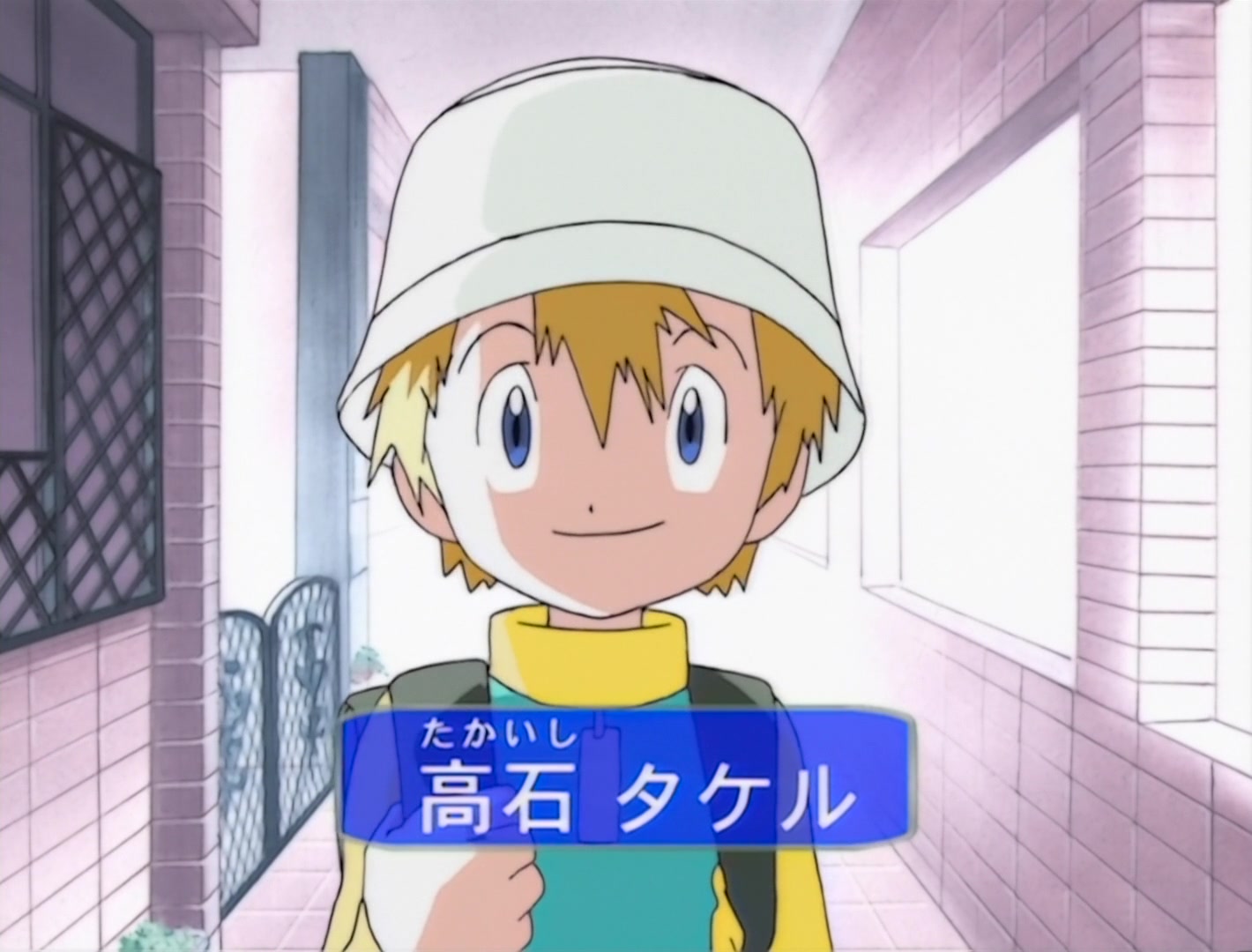
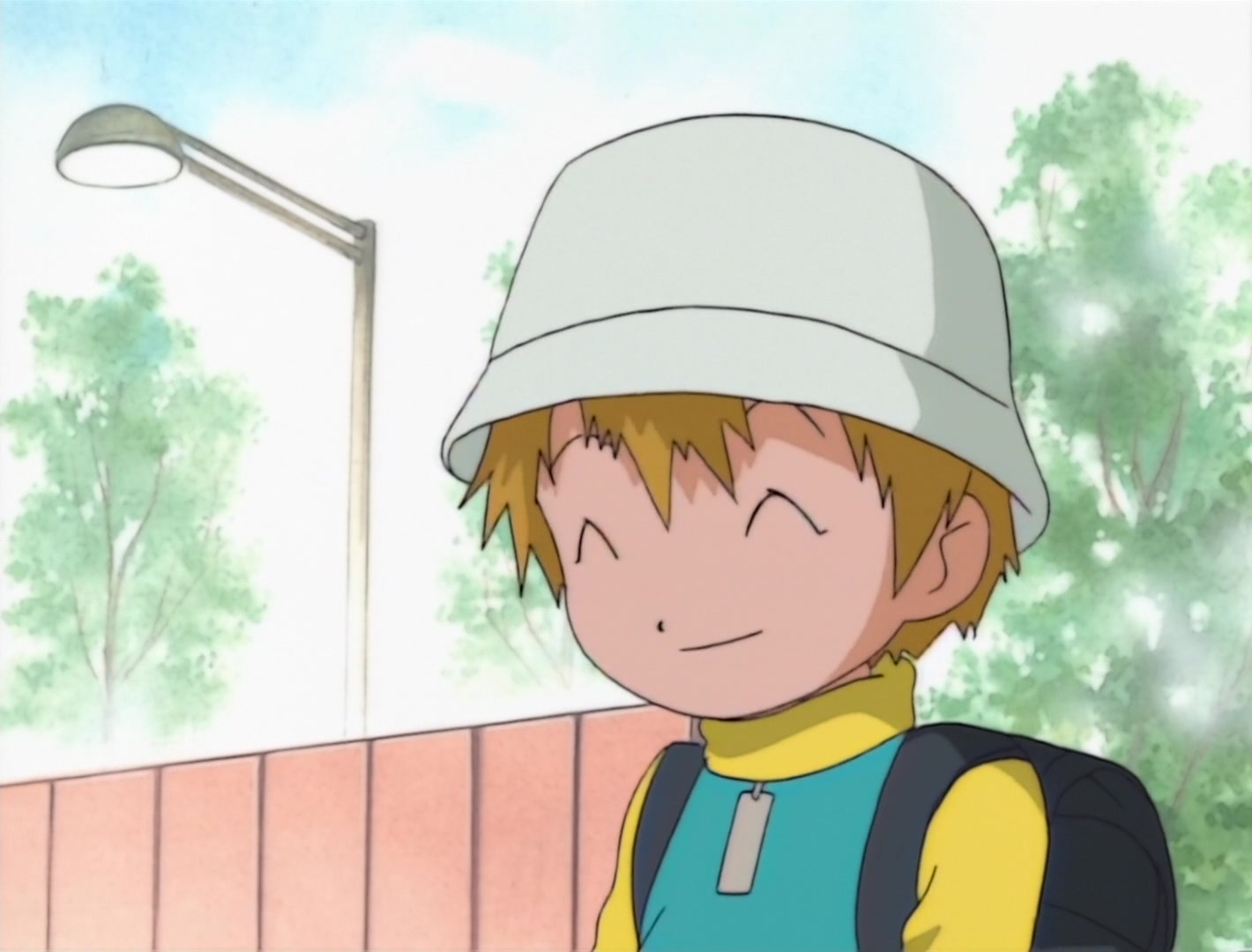
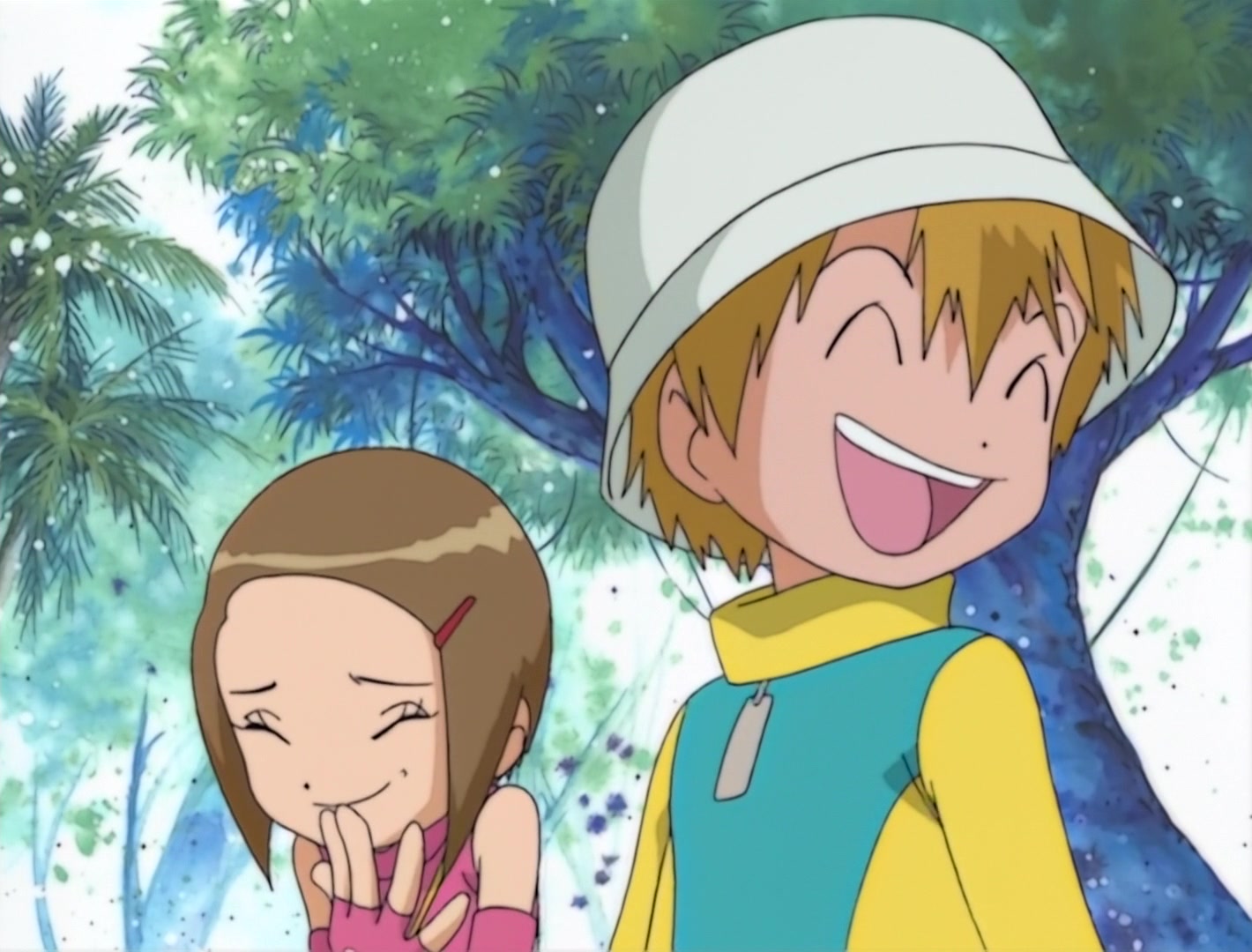
Takeru's manner of covering everything up is the surface-level all-smiles persona that everyone is already familiar with. He's cheerful and optimistic, helpful, happy to buoy others up even under bad circumstances, and under control of himself at all times. He carefully keeps a smile on his face as much as possible and often works to not display stress even when other characters do. When none of his triggers have been touched, Takeru is consistently one of the nicest, most personable, friendliest individuals in the group.
He carries himself confidently and with a sort of easygoing chill that gives the overall impression of someone who's hard to ruffle, who doesn't let anything get to him. He's only too happy to let people think this is the sum total of who he is. Letting anyone past this front would require acknowledging that it is a front in the first place.
It's because he's so effective at this that so many viewers simply buy into this impression totally uncritically and their interpretation of what he is actually like as a person stops there, no questions asked. I generally won't be saying much about the dub here, but the dub is also very much to blame in this, because the dub makes him much more outspoken, open about what he's thinking and feeling, and in general erases all the underlying complexity in the process... However, in terms of the original version, anyone paying real attention should notice the cracks, that something's a little "off" about him, something in his demeanor that's a little too carefully maintained to be genuine.
As a side note, 02's Japanese fan base appears to have realized this a bit better than the Western fanbase. I think this is partly because many Western fans' first exposure was the dub, but also because Western viewers are frequently less savvy to subtle information. I've read multiple Japanese 02 doujinshi which has other characters making jokes about how Takeru's actually kind of scary!
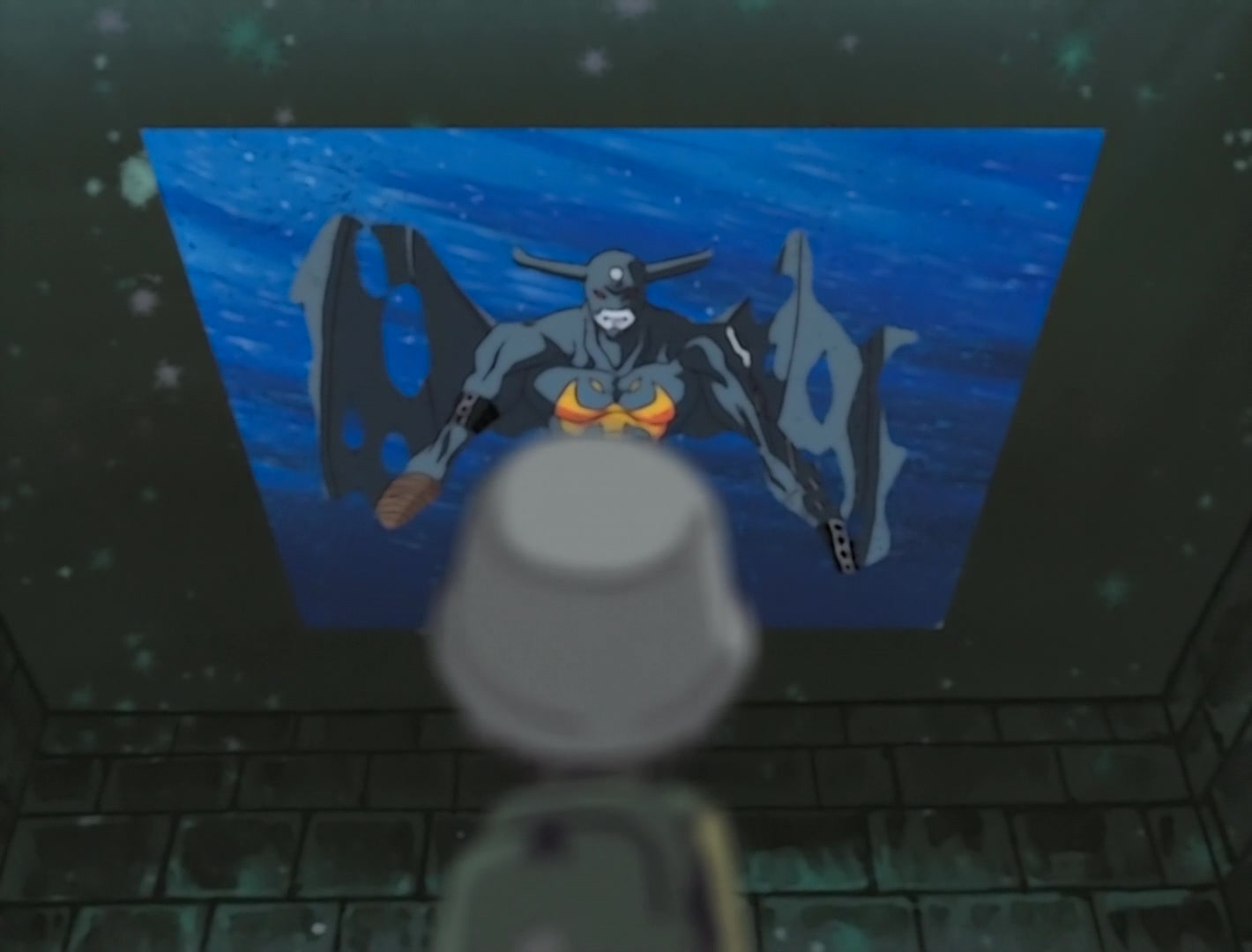
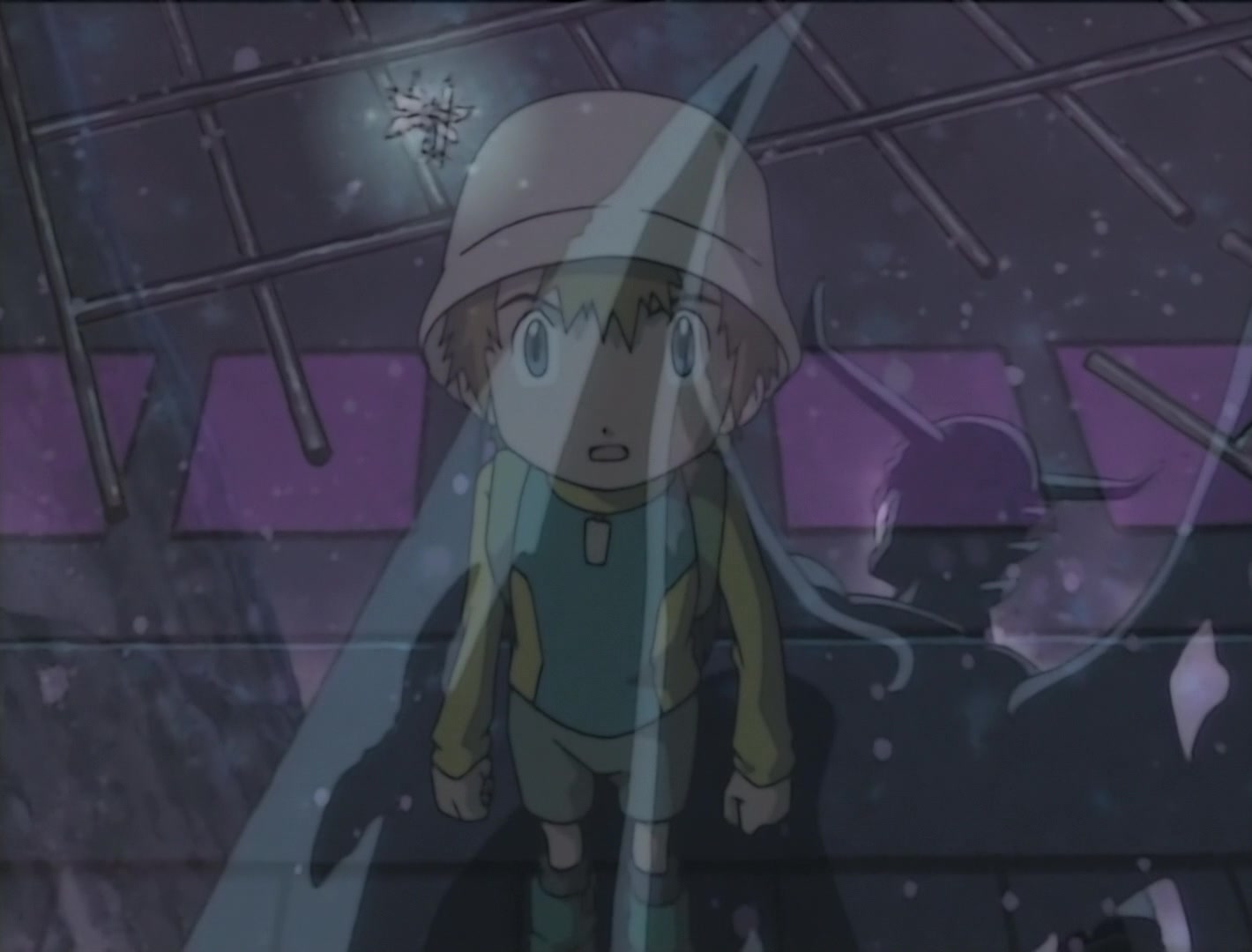
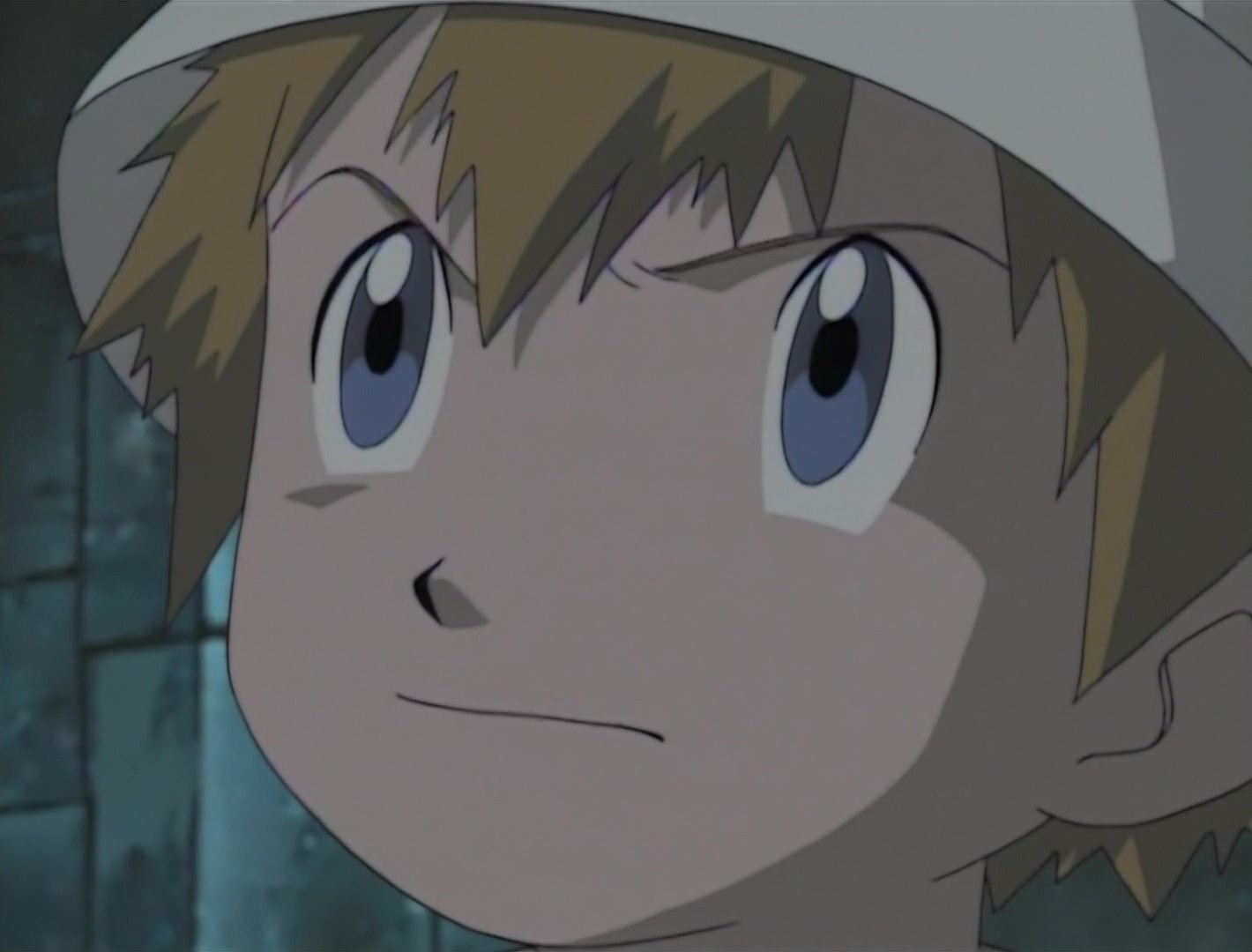
When one of Takeru's emotional triggers is hit in a way he can't suppress or ignore, this façade completely collapses and this manifests in an explosion of irrational, uncontrollable anger. All of Takeru's negative emotions tend to manifest as anger, even when there's something else underneath like fear. For our purposes, the example of most interest is in episode 19, where, upon seeing that the Digimon Kaiser (Ken) has harvested some of Devimon's code for the creation of Chimeramon, absolutely loses his shit and recklessly runs off to take his anger out on the Kaiser personally.
Don't worry, we'll be digging deep into this scene in the next section, but for the moment just try to keep this in mind. In any case, Takeru's inability to manage his own negative emotions means that when something forces them to the surface, having no real mechanism to cope with them, Takeru inevitably lashes out at the source of the trigger seemingly without regard for the consequences.
He even lashes out at Hikari, someone he cares about a lot, in episode 13, and is left to deal with the direct consequence of this outburst immediately after.
It seems to be implied that his lashing out in response to her attempt to seek help is the final push that allows the Dark Ocean to "capture" Hikari. It's just one of many incidences where his refusal to address things that he's sensitive about causes him to lash out at the people around him, and shows that it's not exclusive to an "enemy" like the Kaiser.
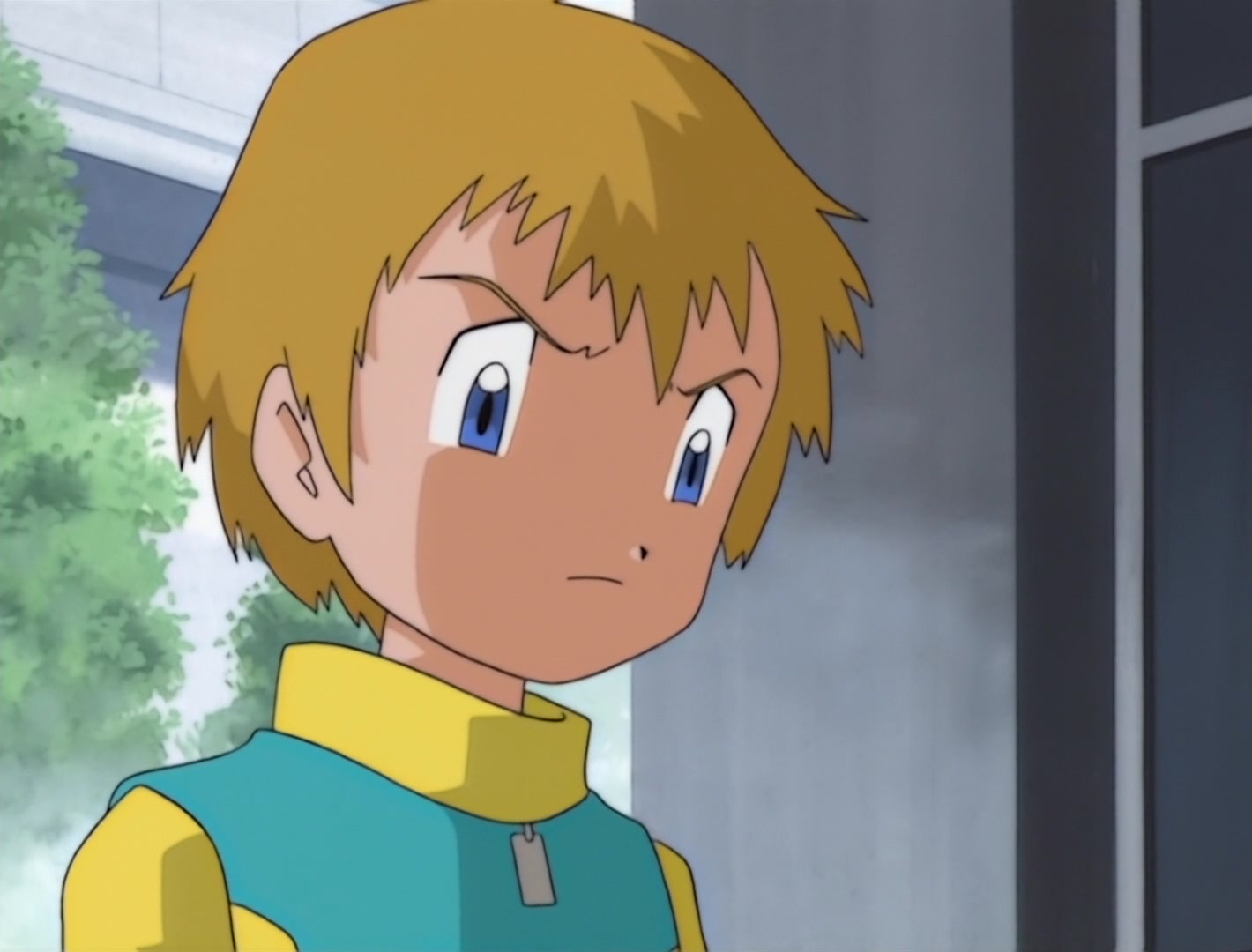
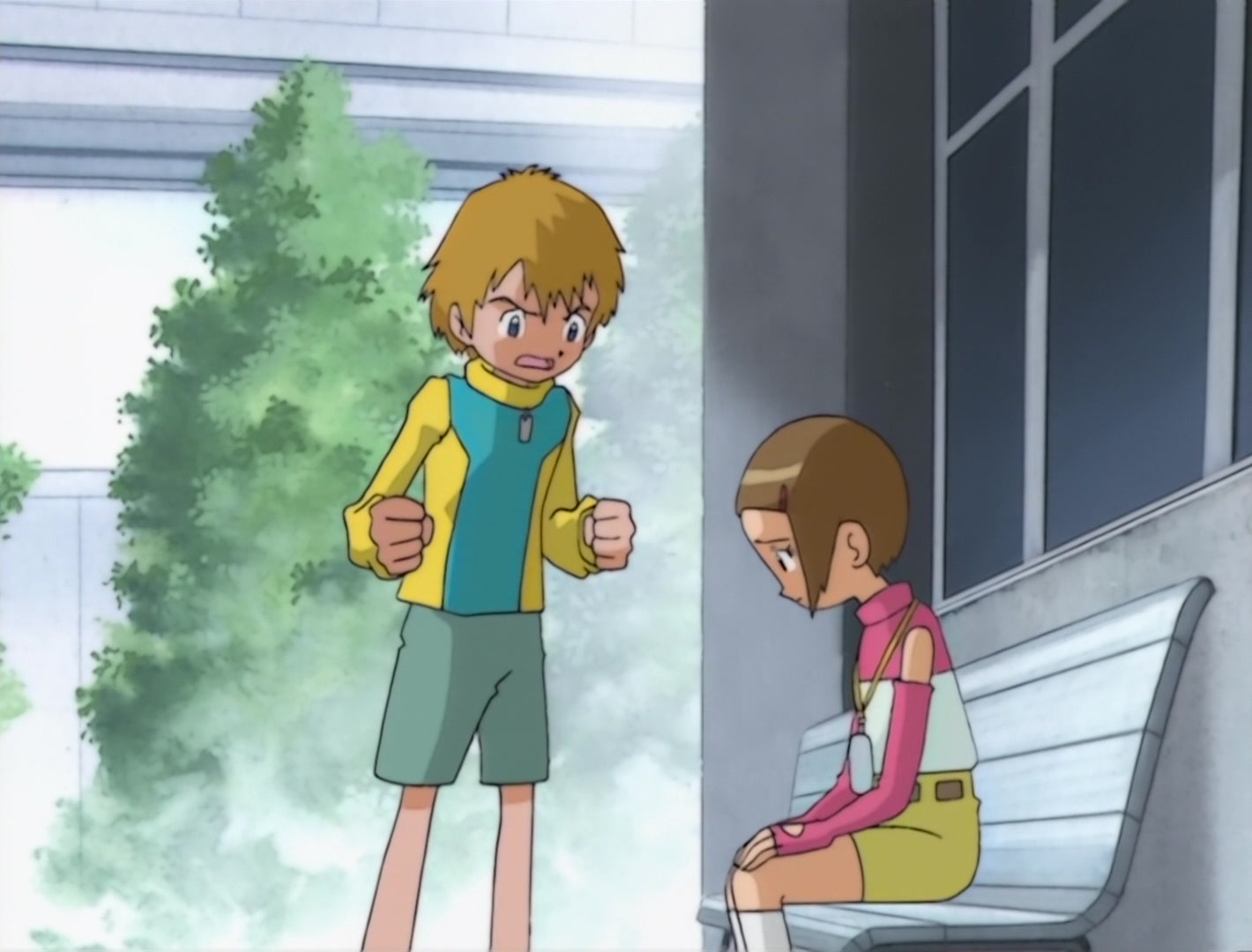
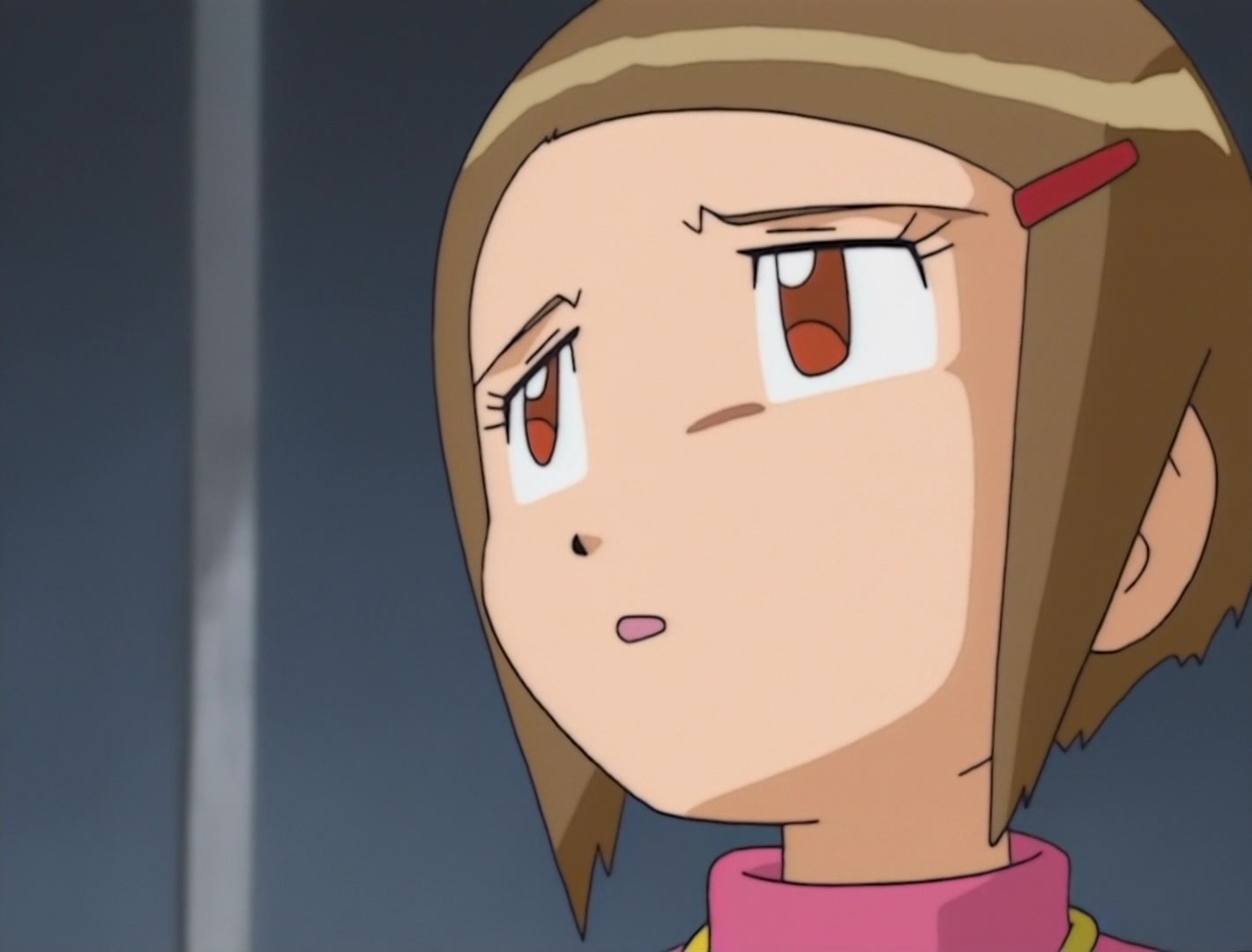
Worse, because Takeru always returns to suppressing and refusing to contemplate ideas or facts that might be upsetting or inconvenient after he has had one of these outbursts, it is extremely easy for him to rationalize away anything he does as a result of this loss of control. What makes this not only destructive but dangerous is that Takeru has no awareness of this at all. It isn't even a question of being blind to an issue, but rather that he does not consider any of it to be a problem at all.
Additionally, Takeru has a very strong conviction of the rightness of his particular moral compass and a simultaneous ability to completely discard any concerns about potentially violating it when he's been set off, with seemingly no long-term consequences to his worldview. This results in behavior that seems completely contradictory, an almost Jekyll-and-Hyde situation.
His friends have some awareness of it, some more than others, with Yamato, Hikari, and Iori likely having the best insight. But he's so good at hiding what's going on inside that even those close to him don't see the full extent of it. He's behaving according to internal principles that make sense only to him and are personal to him, as opposed to something definable in objective reality.
Put another way, he absolutely does have principles and values he considers important, but these principles are readily bent when necessary to justify his own emotional reactions. This also makes it difficult to properly nail down what his principles really are, and it's telling that other characters still describe them in terms of emotions, such as when Iori wonders "why Takeru hates the darkness so much".
Takeru's method of dealing with this inherent contradiction is, no surprise, the exact same "coping mechanism" that causes that contradiction in the first place - that is, his staunch refusal to think about ideas or emotions which are uncomfortable to him. He's thus quite capable of deviating drastically from his stated moral code, and then justifying whatever he did to himself afterwards so he doesn't have to deal with any of the emotional fallout.
Guilt, in particular, isn't really something he has a mechanism to handle internally, so anything that might cause him to feel guilty is quickly rationalized away and then compartmentalized. This is an artifact of his issues regarding his parents' separation, something he was unable to deal with at such a young age and for which he has developed this maladaptive coping mechanism.
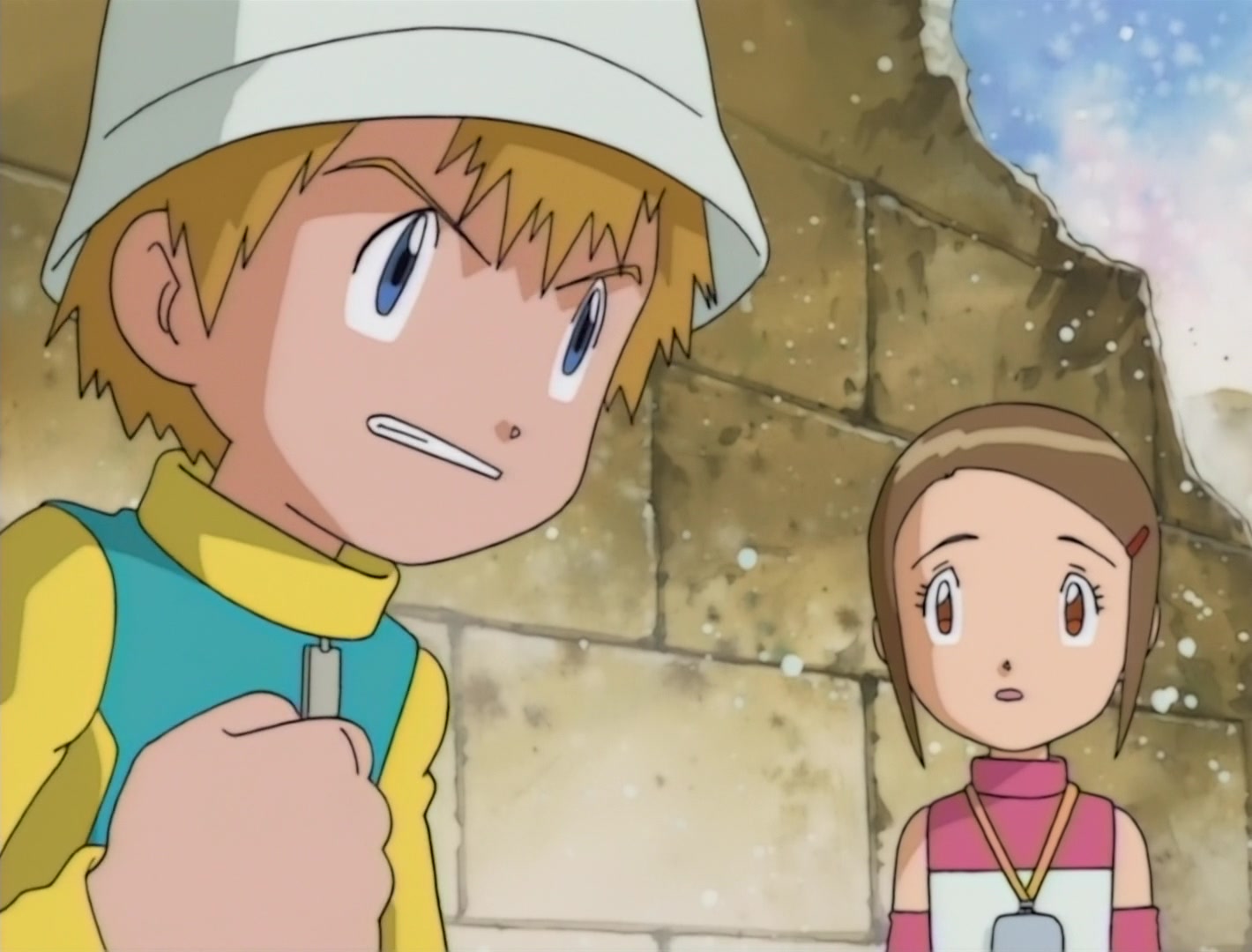
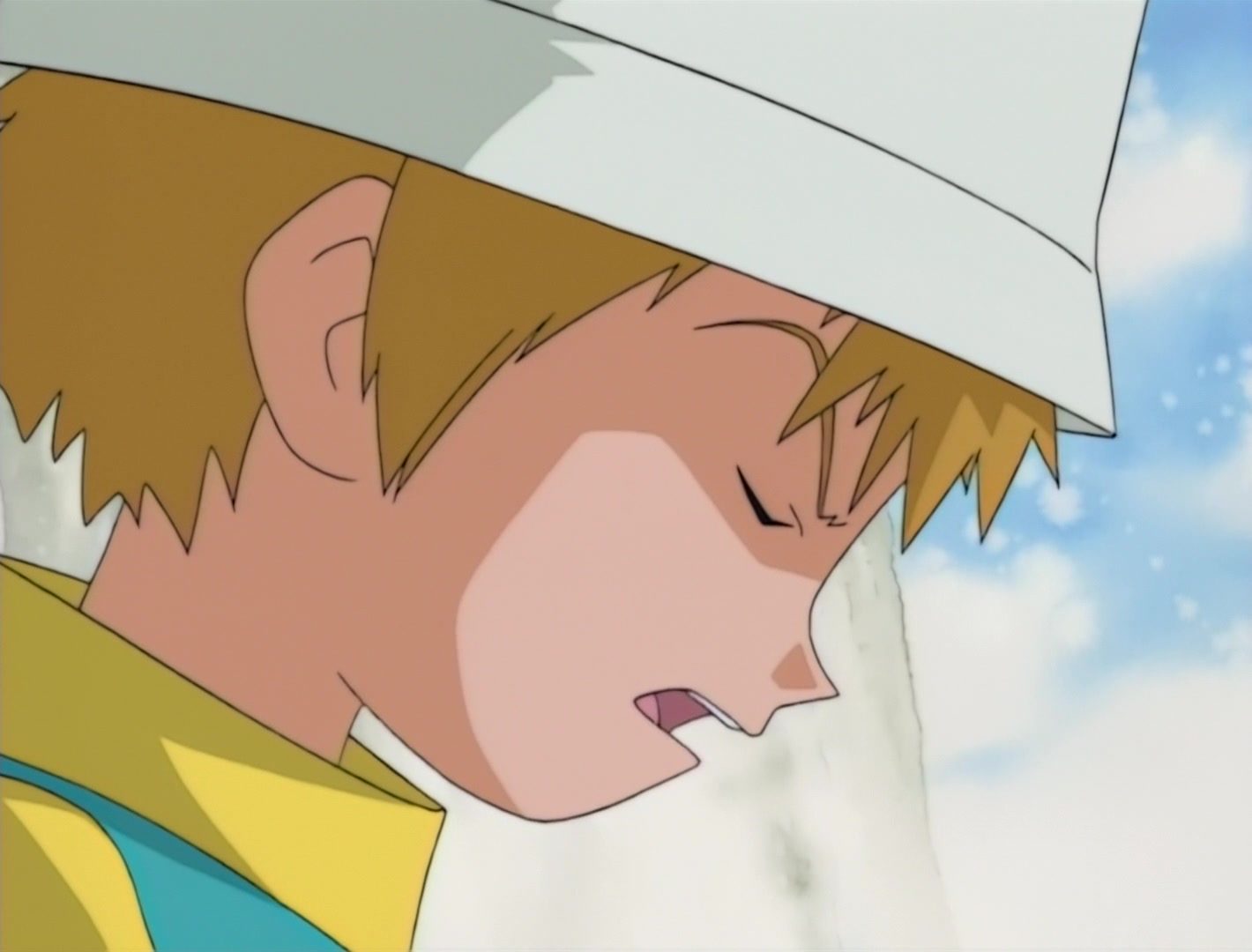
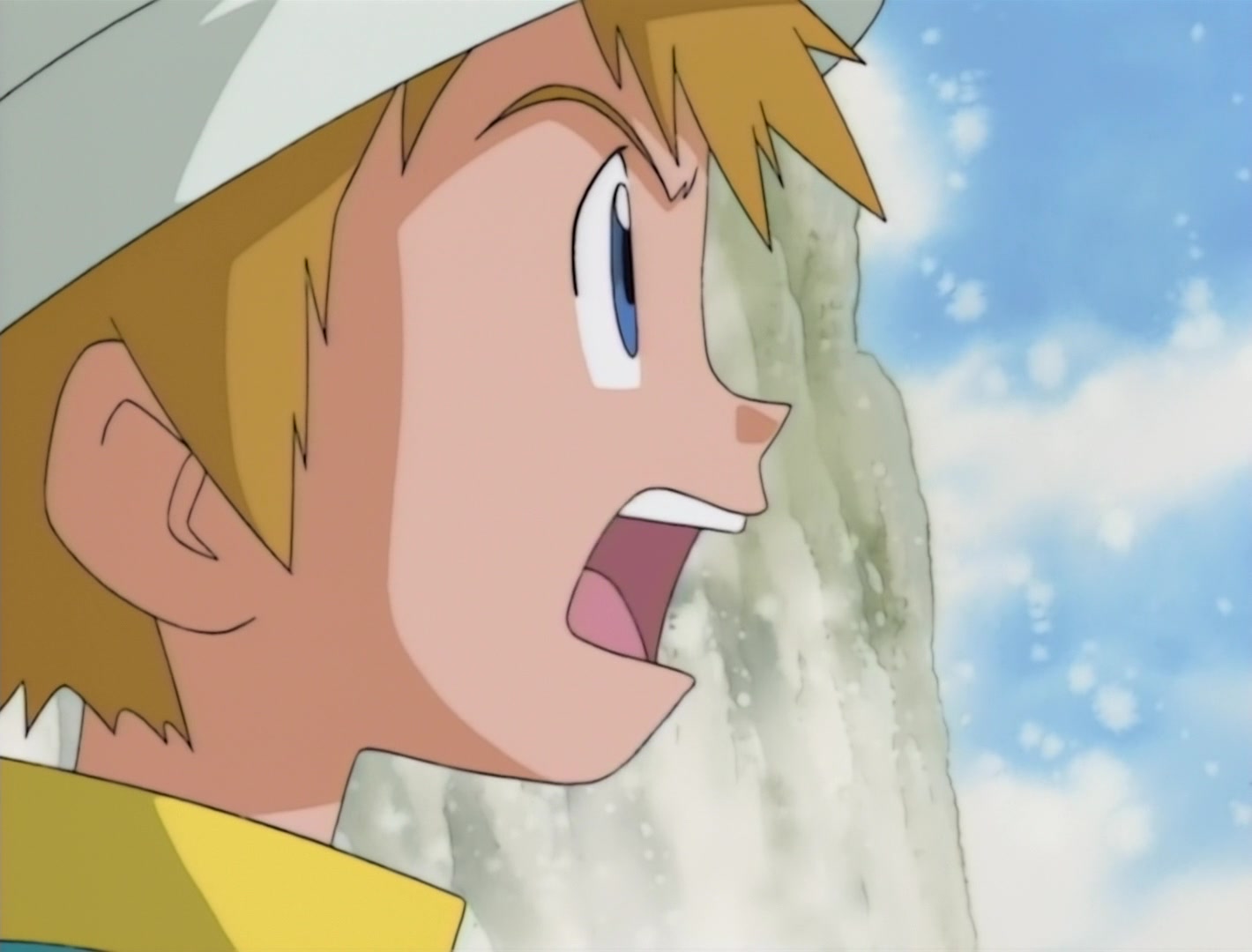
This is demonstrated most clearly with his reaction to Black Wargreymon, something Iori notices with no small degree of concern. Quote Shiha, "The fact that ostensibly one of the outwardly “nicest” kids in this group suddenly blows up in certain circumstances and basically goes “absolutely nope, needs to be killed!” in the midst of a few moral debates over killing sentient Digimon disturbs [Iori] deeply, and really, it’s not even about the killing part [...] as much as Takeru’s being pretty gung-ho about it. Not “I don’t like it, but we have to” like he said earlier, but NOPE, GOTTA DO IT."
As a side note, I won't be digging too much into the strange relationship Takeru and Iori have as Jogress partners here, but it's useful to note what Iori's reactions tell us about Takeru. Notably, Iori's awareness of Takeru's volatility and secretiveness is so acute that in his attempts to understand the other boy better, he opts not to try to speak with him at all, but rather Yamato, the person he concludes would know Takeru best and is far more likely to give him useful information. And of course he does, as Yamato explains about the traumatic death of Takeru's partner when he was Iori's age, the missing piece of the puzzle that allows Iori to comprehend where Takeru's fury comes from.
When Takeru learns about this, he expresses annoyance that Iori didn't just talk to him directly, but it seems unlikely he would give Iori a straight answer if he did. He's not even willing to think about it himself, why would he suddenly open up now? There's also the interesting wrinkle that Yamato suggests Takeru can relate to Ken, with the trauma of losing his partner. Put a pin in this because we'll come back to it later.
It's not missed, of course, that Black Wargreymon's existence is an indirect result of Ken's actions as the Kaiser, even though it's Arachnemon that created him. When Takeru snarls that Black Wargreymon's existence is "absolutely unforgivable" in episode 34, the camera briefly cuts to Ken. Ken's frightened expression says a lot about how he feels about seeing Takeru acting this way, and shows that Ken's arguably still a little frightened of Takeru.
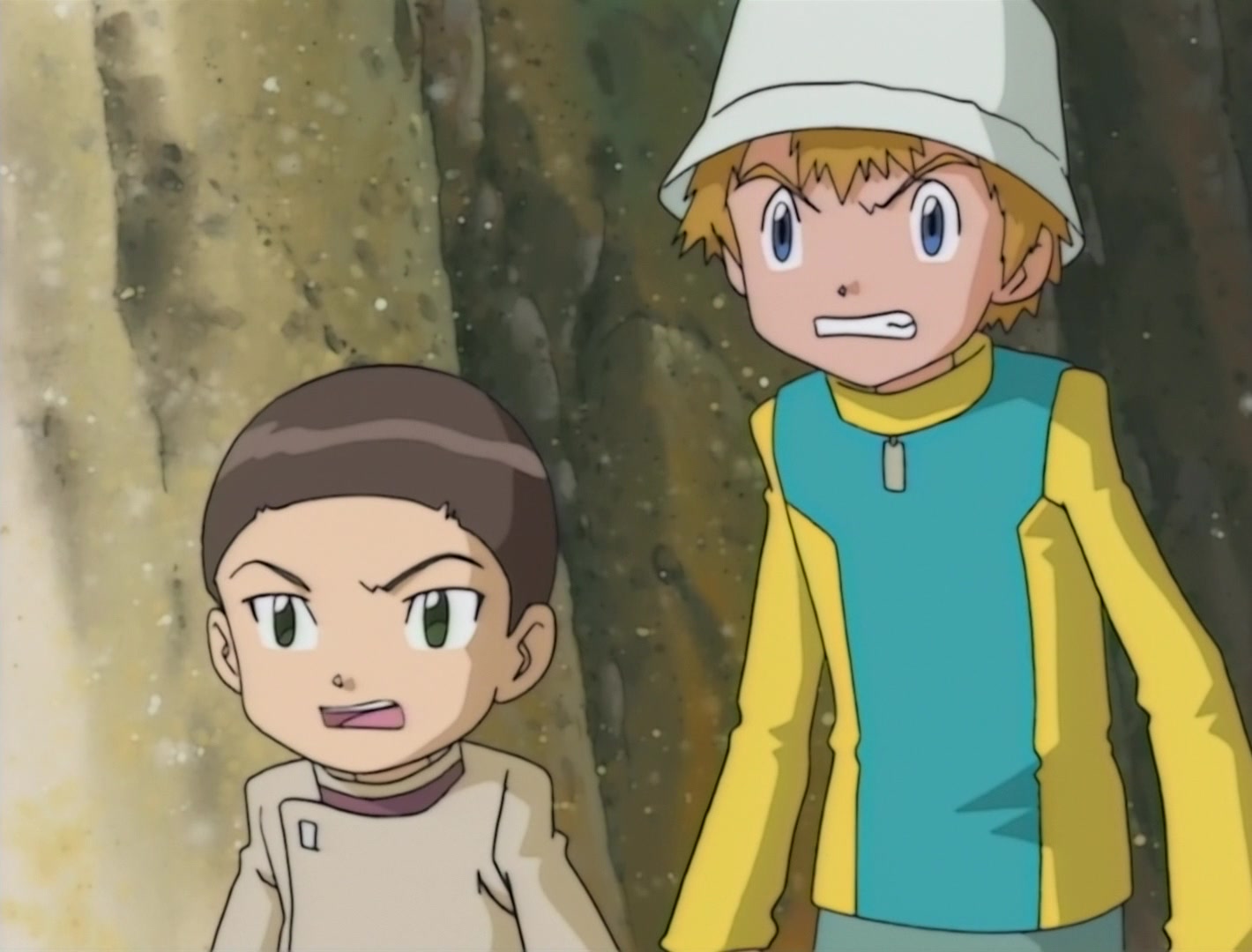
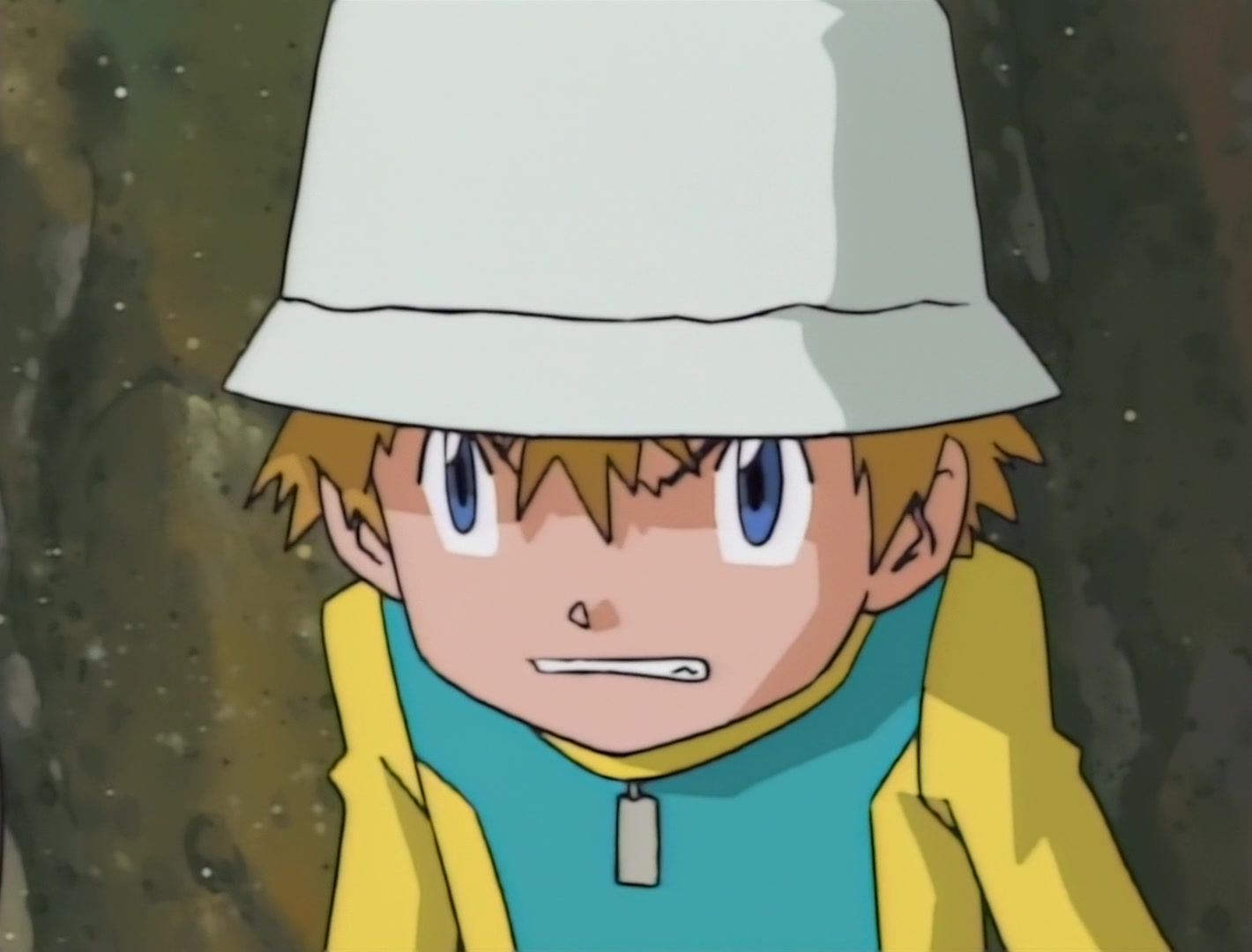
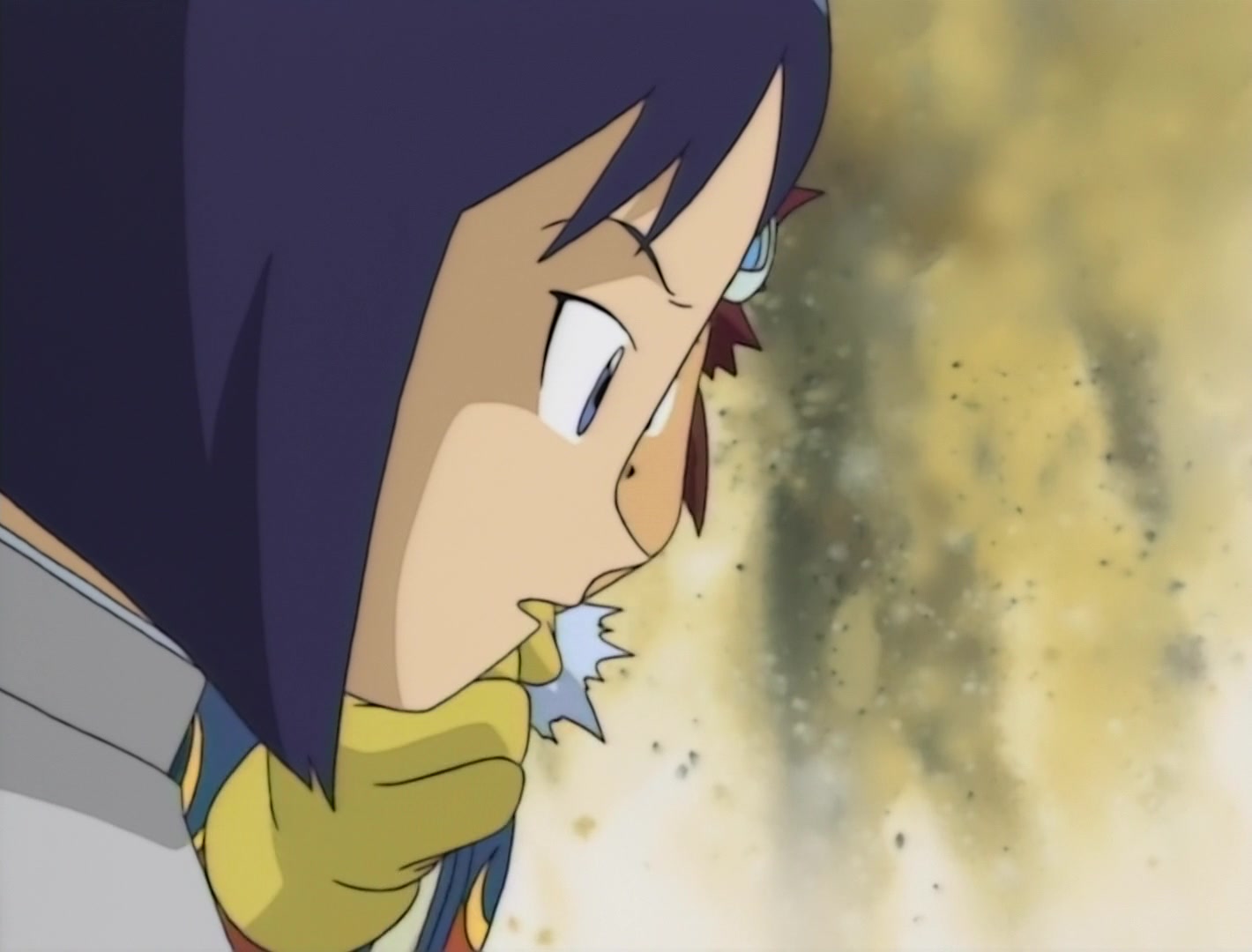
Takeru's enthusiasm for violence when it's directed at the "right" target - that is, someone or something that deserves it - is unsettling and remarkably consistent. Takeru professes to care an awful lot about the value of Digimon's lives as a general principle, and it's mostly true, right up until he's dealing with "evil", at which point all of that flies out the window.
Sparrow: I think it's also important to point out how Takeru's morality differs from both the new 02 Chosen and Hikari when it comes to mcfucking murder.
When Ken's off on his own and nobody knows that those are animated towers and not real digimon, folks who aren't Daisuke aren't too happy about it. After all, Daisuke, Miyako, and Iori have never fought to kill instead of free. Takeru and Hikari have, and she even wonders if there's something else going on behind the scenes here, but Takeru is uninterested in Ken's reasons, he's just bad.
Fast forward to the Demon corps invasion of the real world. Daisuke and Ken, and especially Miyako and Iori, aren't too happy at the thought of for real permanently deleting their enemies, even if they are being pretty evil. At least until the collateral damage goes too far, and they have to. They still don't like it.
Hikari has very much done this before, but she isn't happy about it. As the most sensitive of the group, she understands the pain of her Jogress partner. That's in sharp contrast to Takeru's attitude on the matter.
Homeboy is ready for murder yesterday. Iori is struggling with his morality but Takeru isn't sympathetic. His thoughts on the matter total to “evil should die and I'm killing it.” I mean, shit bro, when MarinDevimon attacked that ship, Jou had to tell Takeru to stop hounding the enemy and help rescue the innocent people first!
Moro: Exactly. Why are you feeling upset about that? Don't you understand they're evil and deserve to die? That the worlds are better off without them? Judge, jury, and executioner sums up Takeru perfectly.
The argument can't be made that the reason he's unbothered by doing it himself is because of the Digimon cycle of rebirth, either, since he is well aware that any Digimon killed in this manner die permanently. He doesn't struggle to rationalize it at all. It's simply automatic.
Takeru's worldview doesn't really afford for anything other than black and white morality, and this inevitably presents a problem when situations calling for that kind of nuance arise. It's all well and good to say there's a moral issue about killing sapient Digimon, but from the audience's perspective this isn't ultimately a big deal. However, Ken, with his checkered past and desperate desire to atone, is another matter...
In sum, it's this combination of traits that makes Takeru not only volatile and unpredictable, but dangerous, with the ready potential for his angry outbursts to escalate into something far worse...
- NEXT: Part 2: Diving in the Deep End -
We've laid the groundwork, and now it's time to see the pieces come together. Click the link below to move to part 2 of the manifesto!
Next part →
